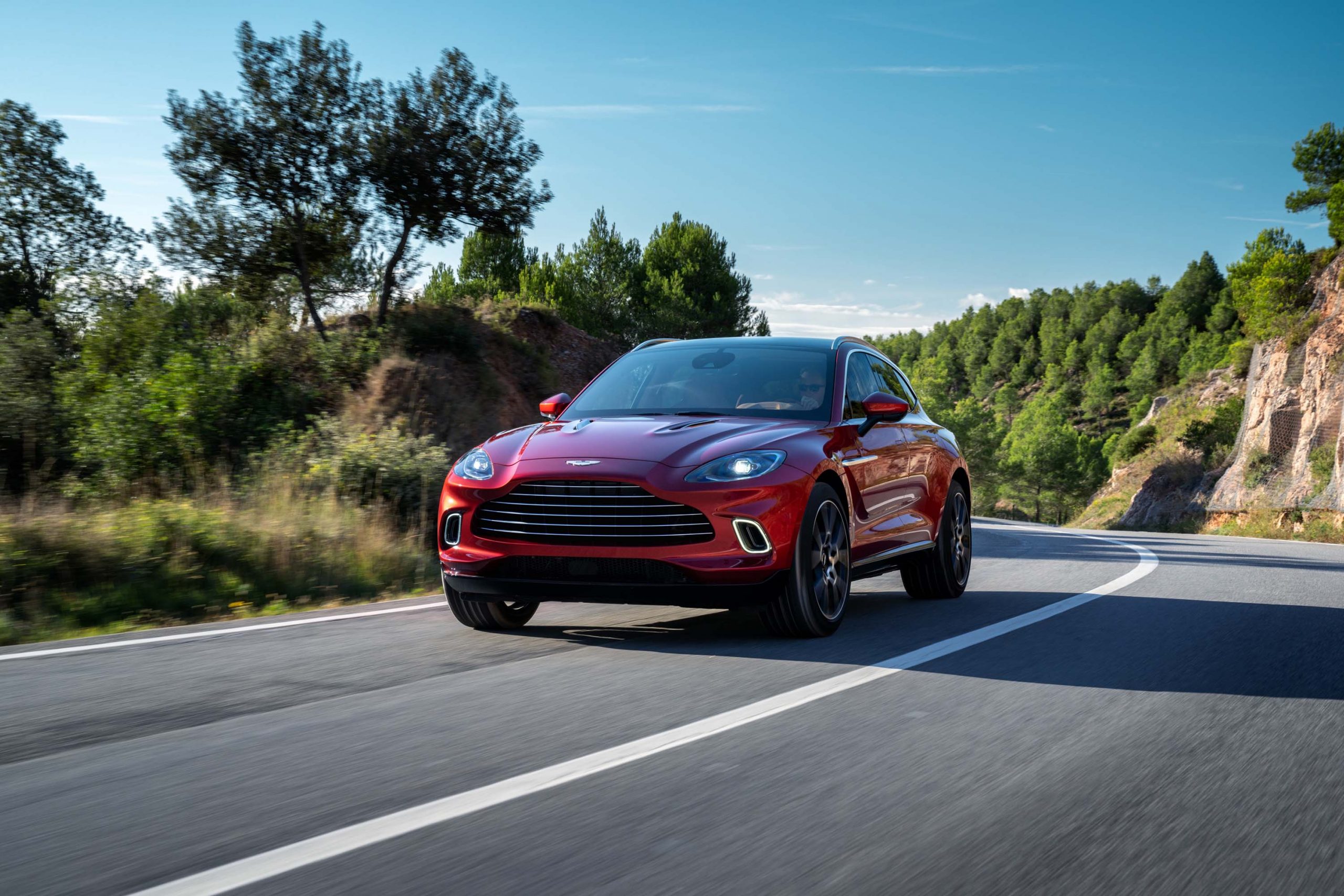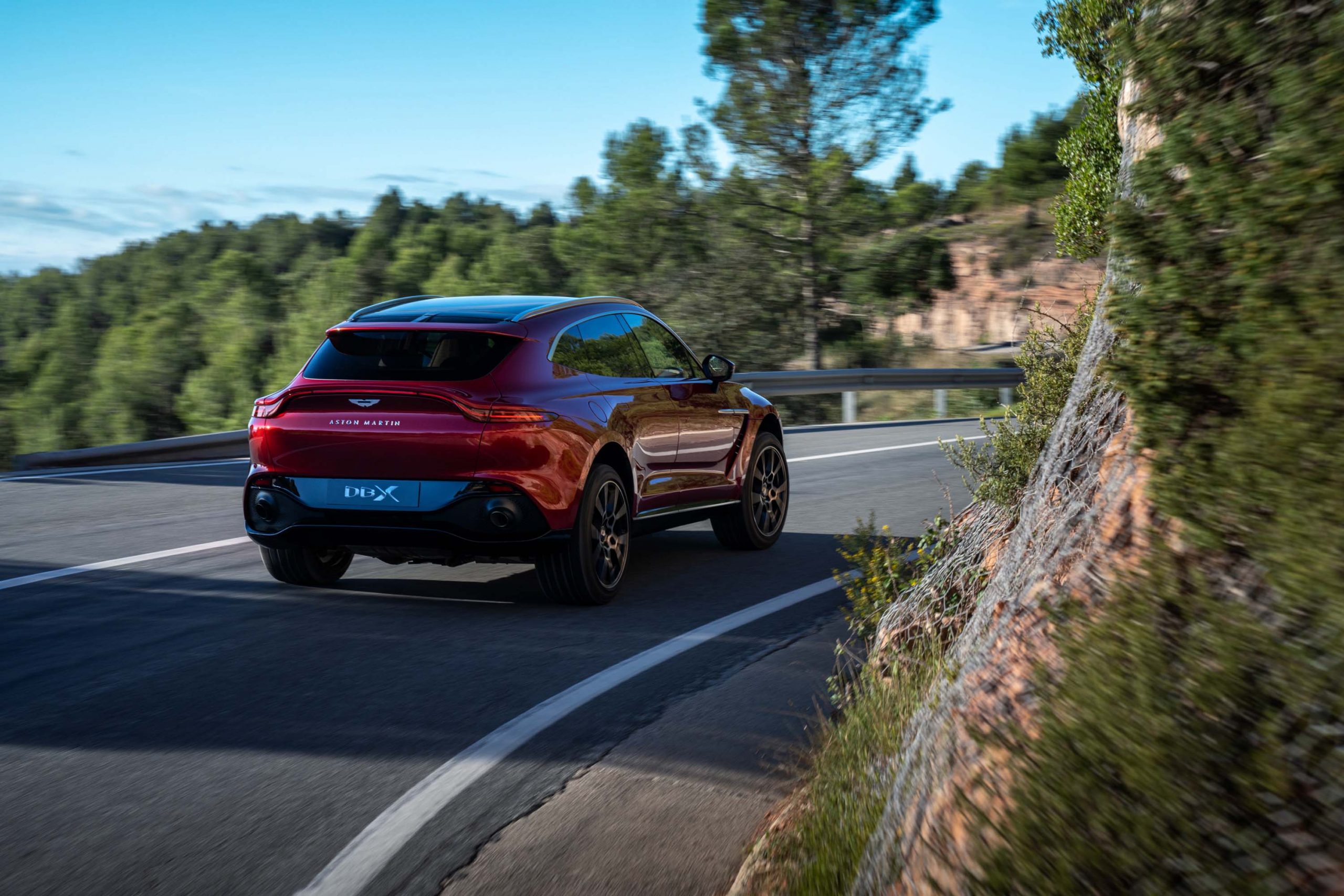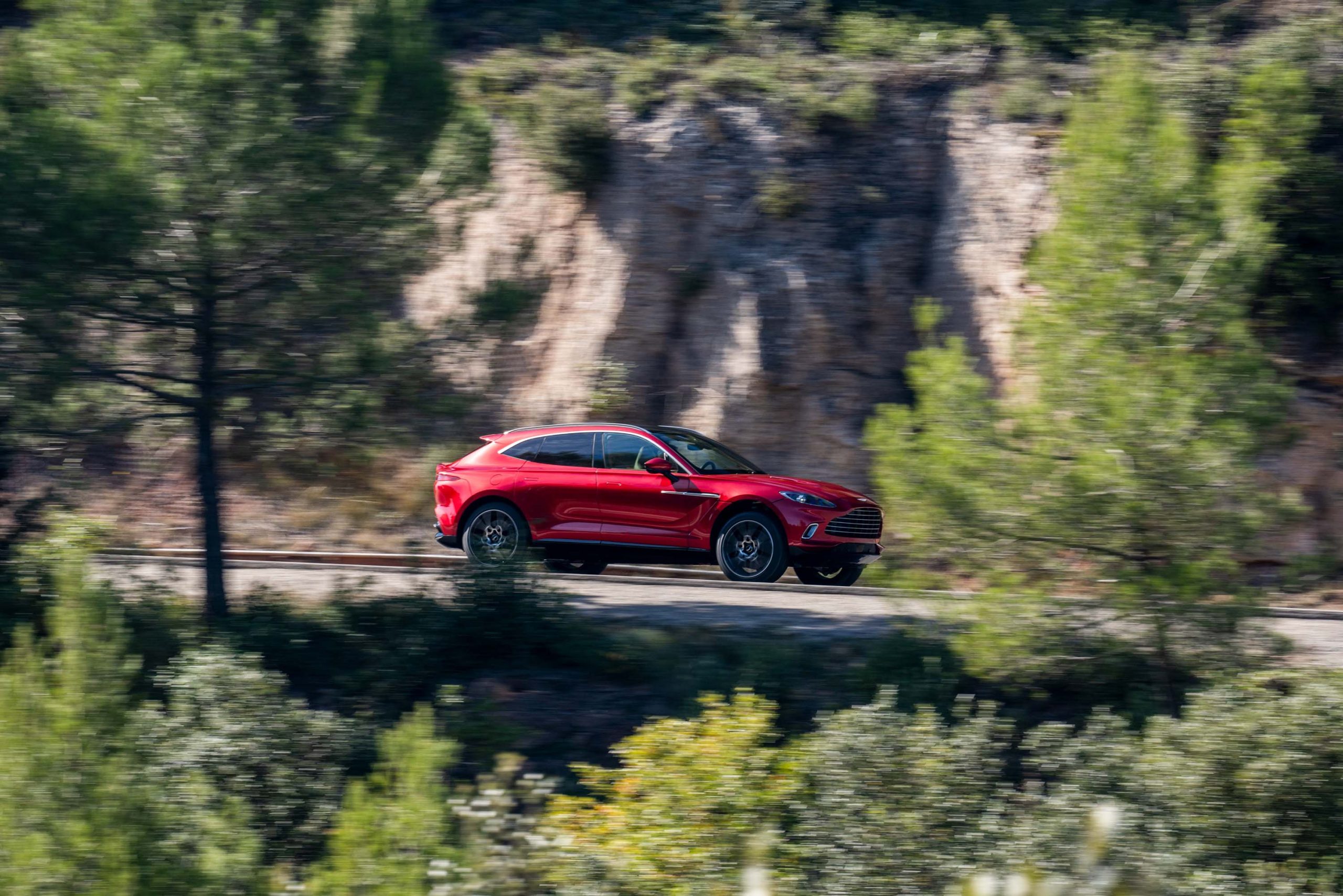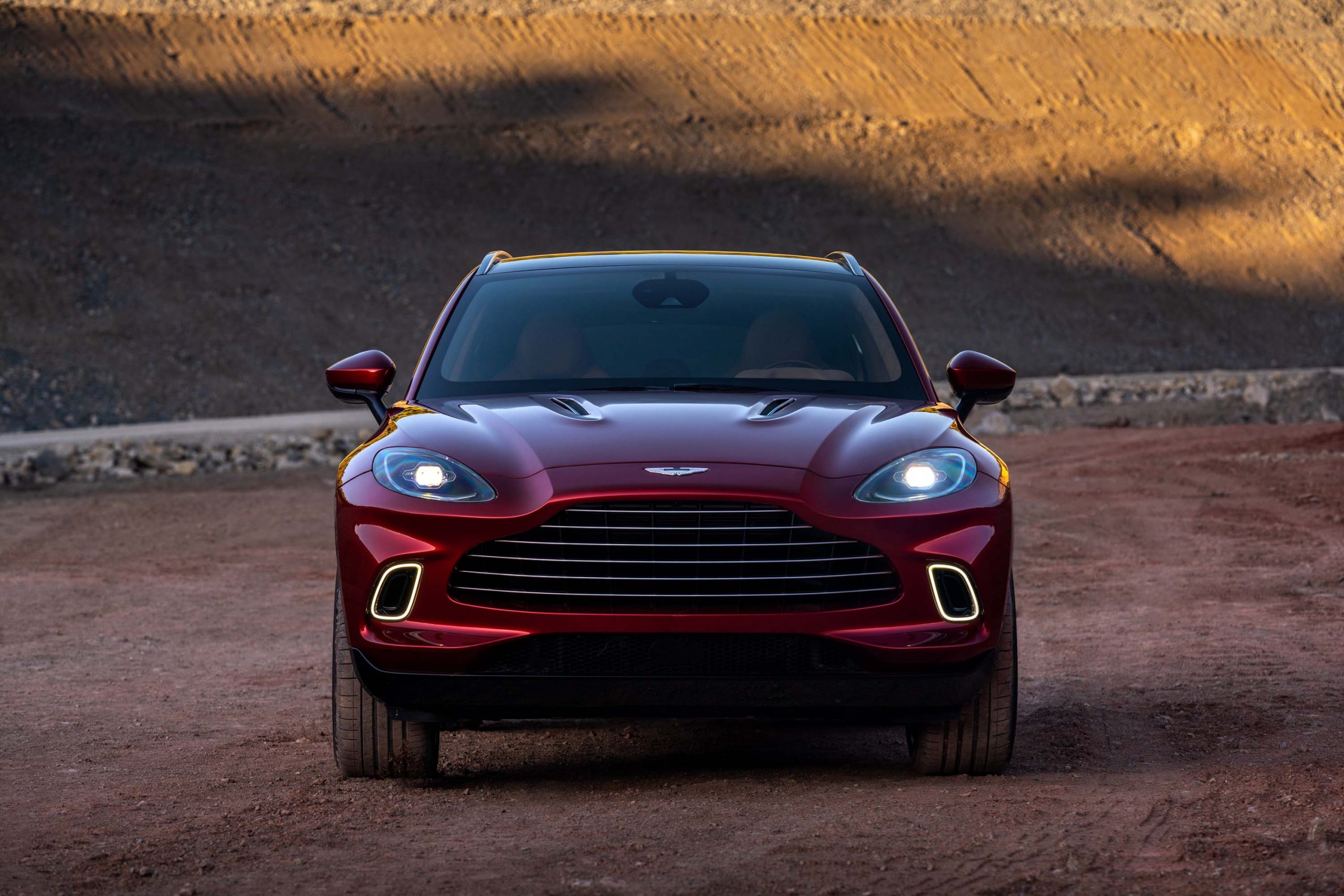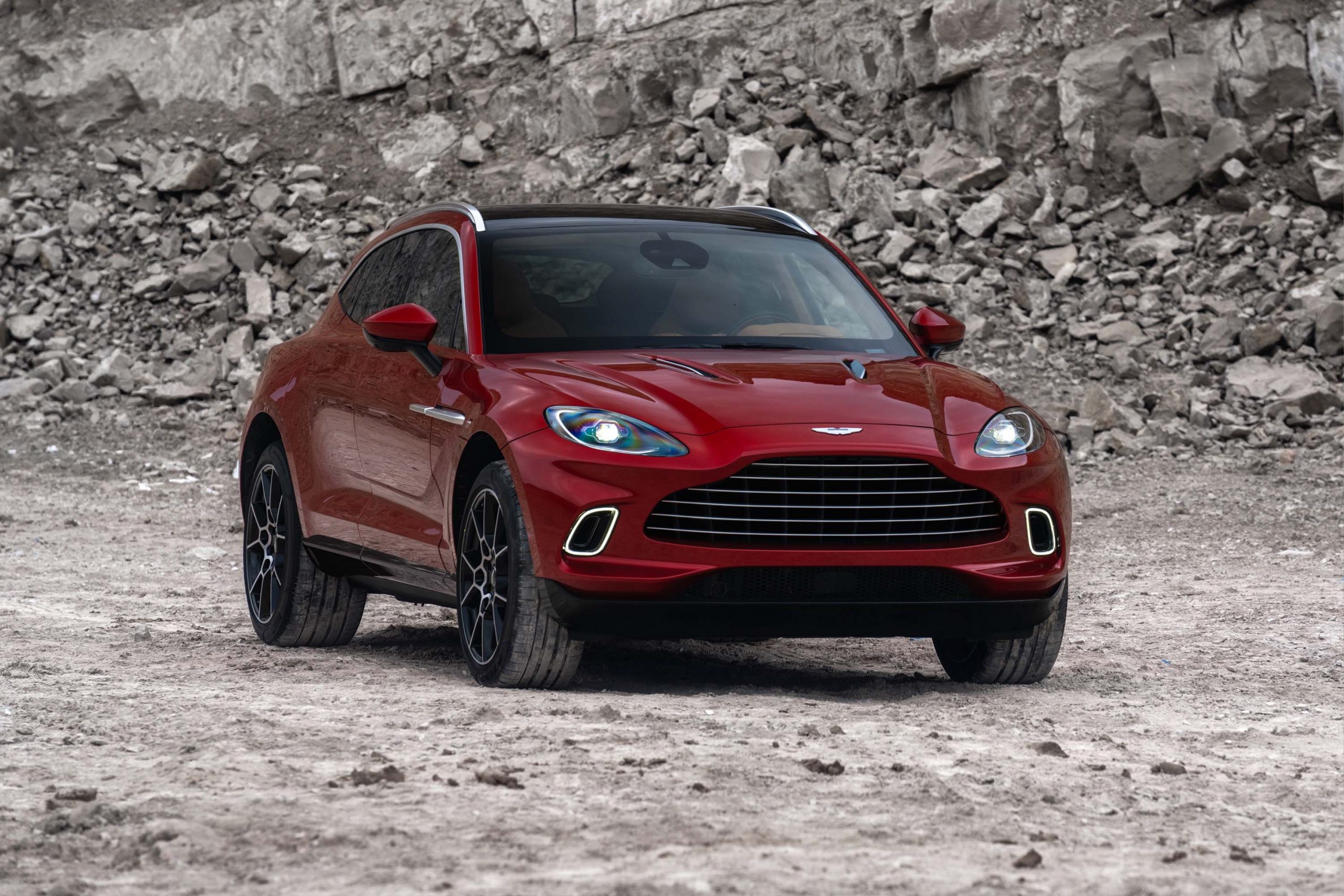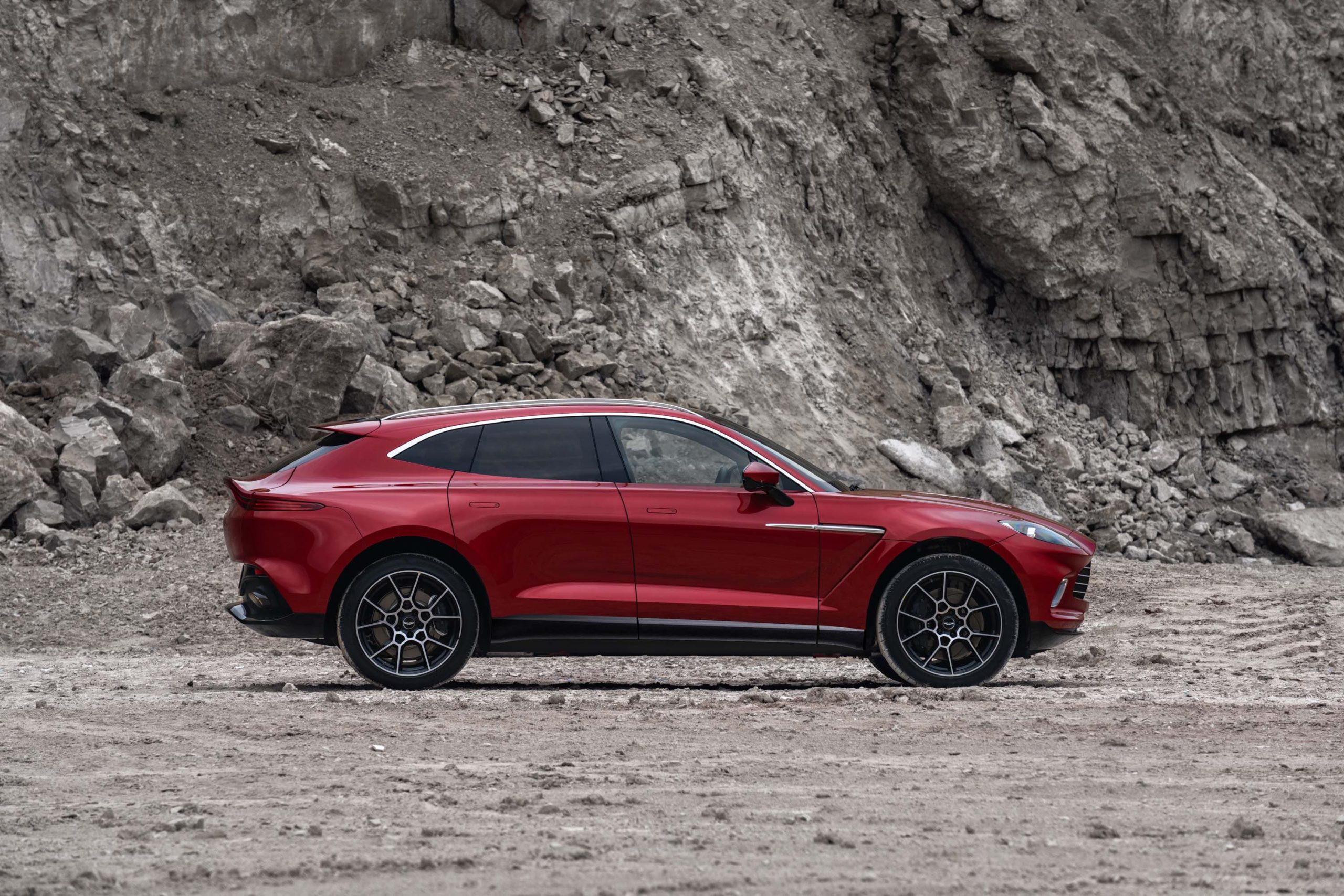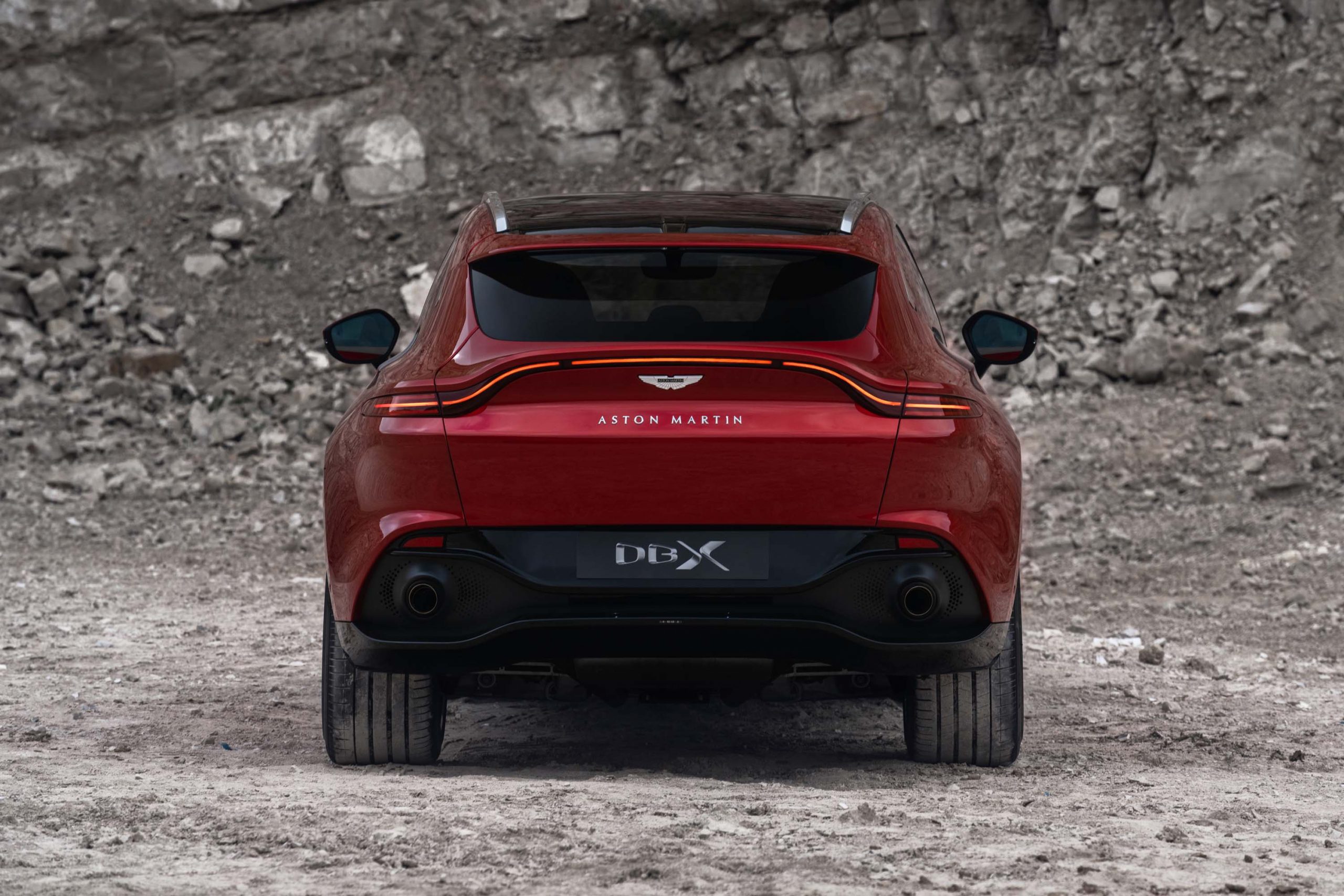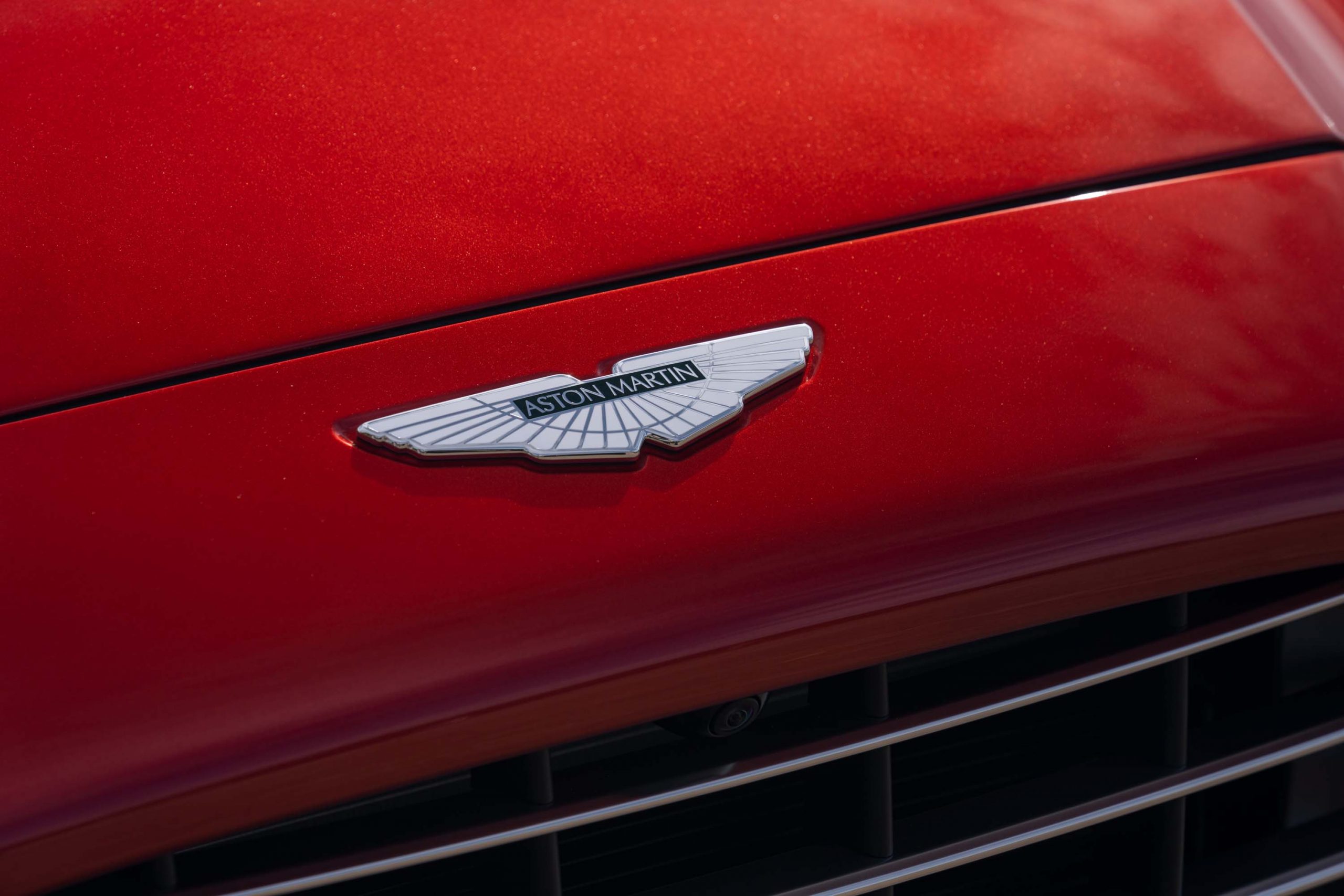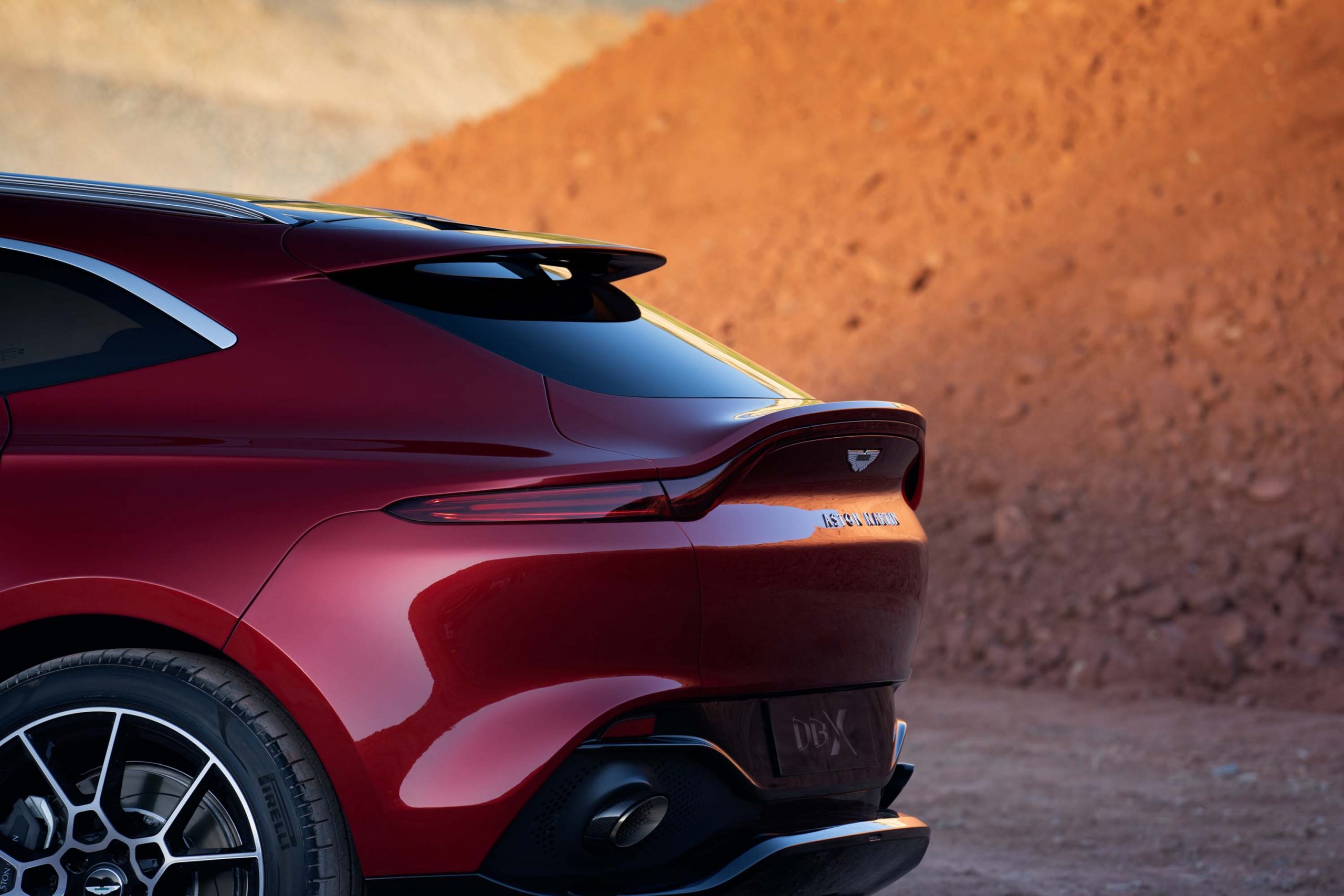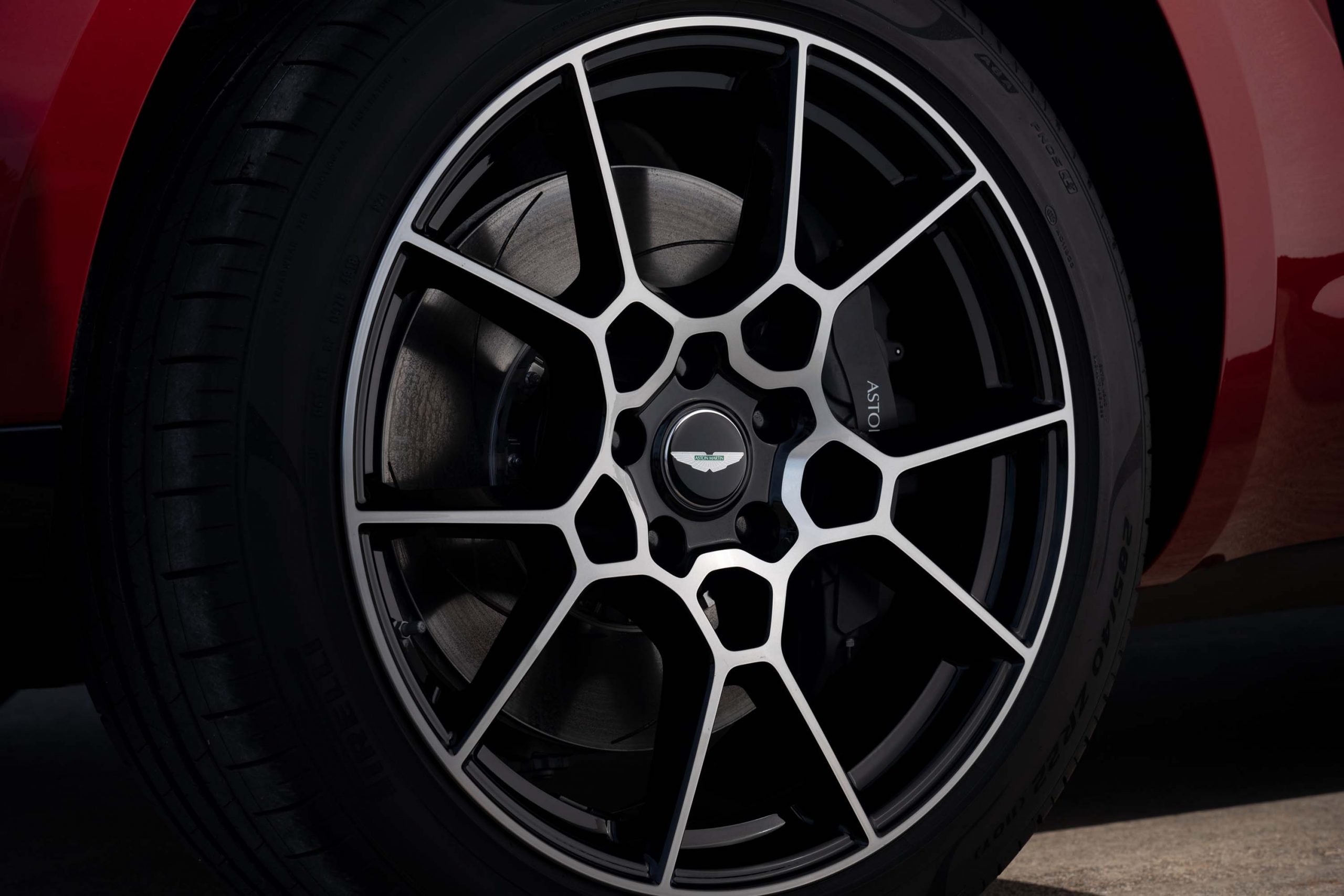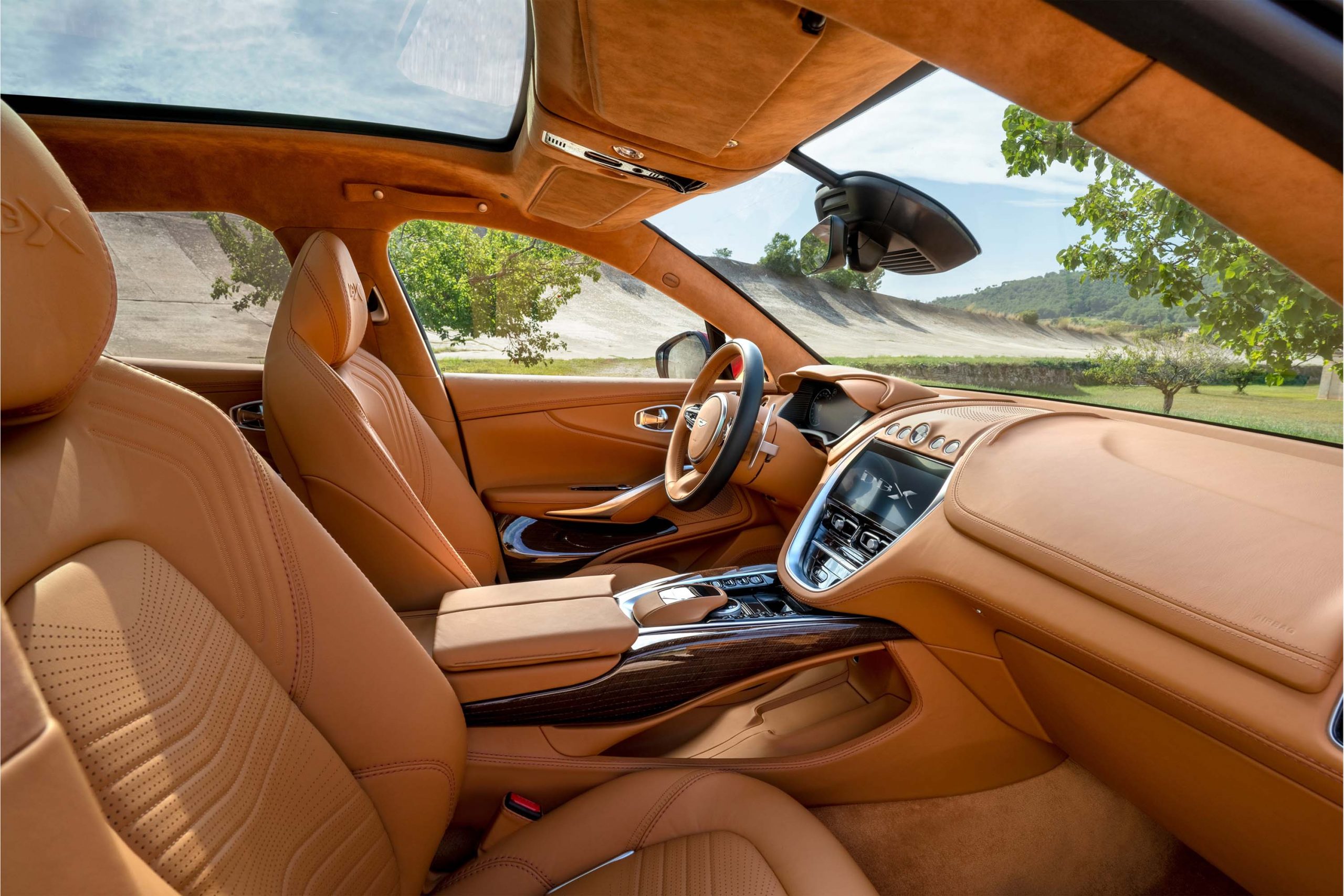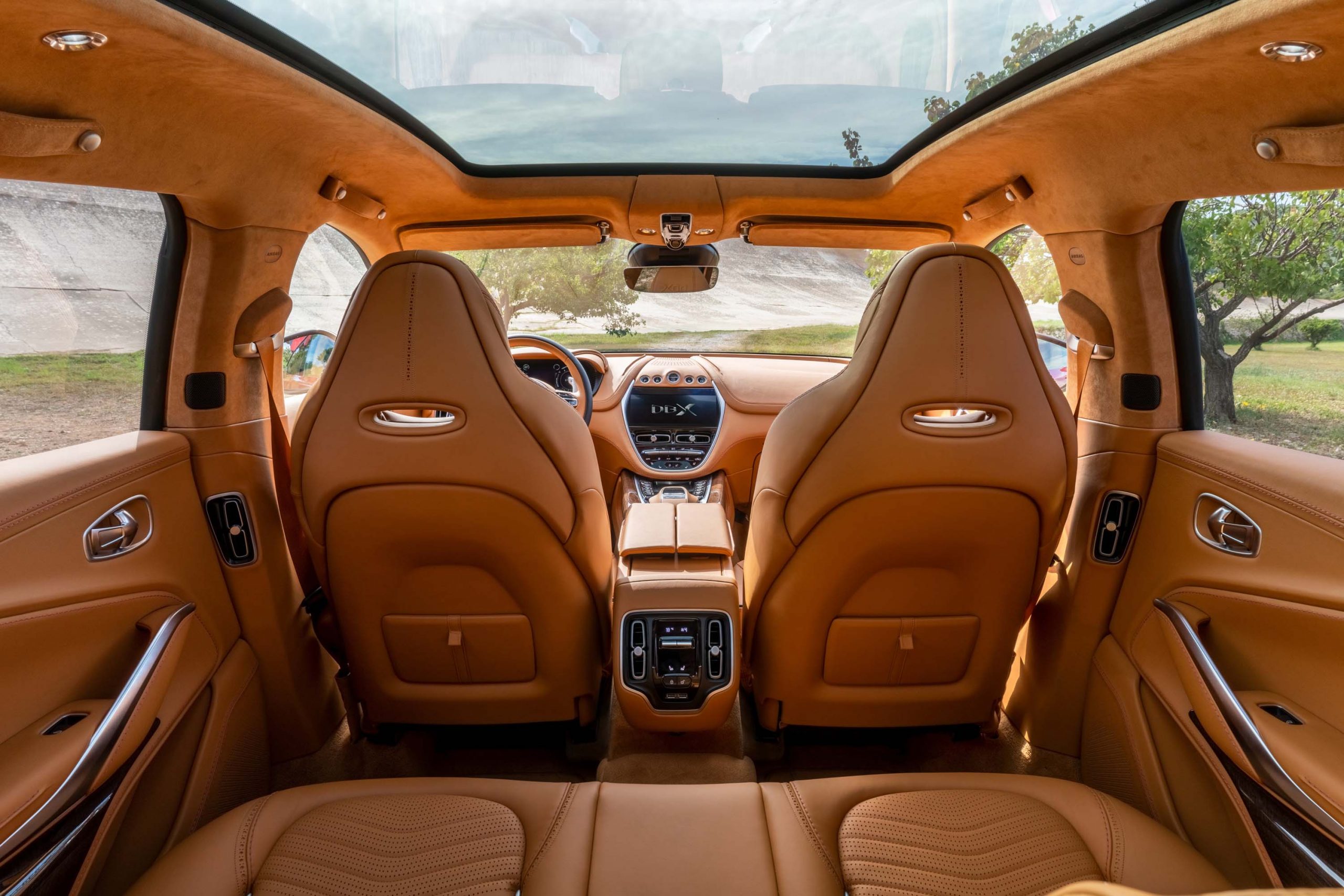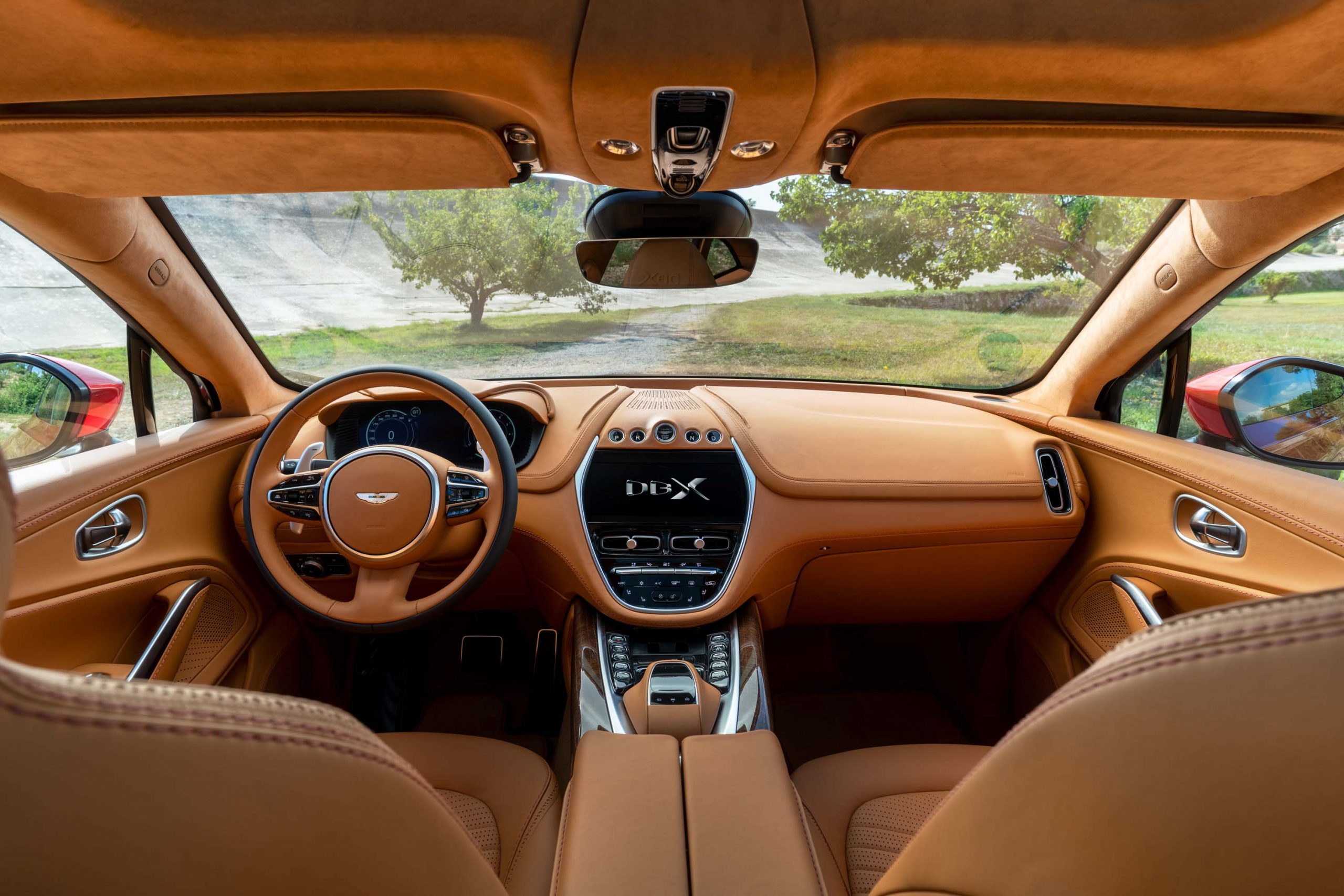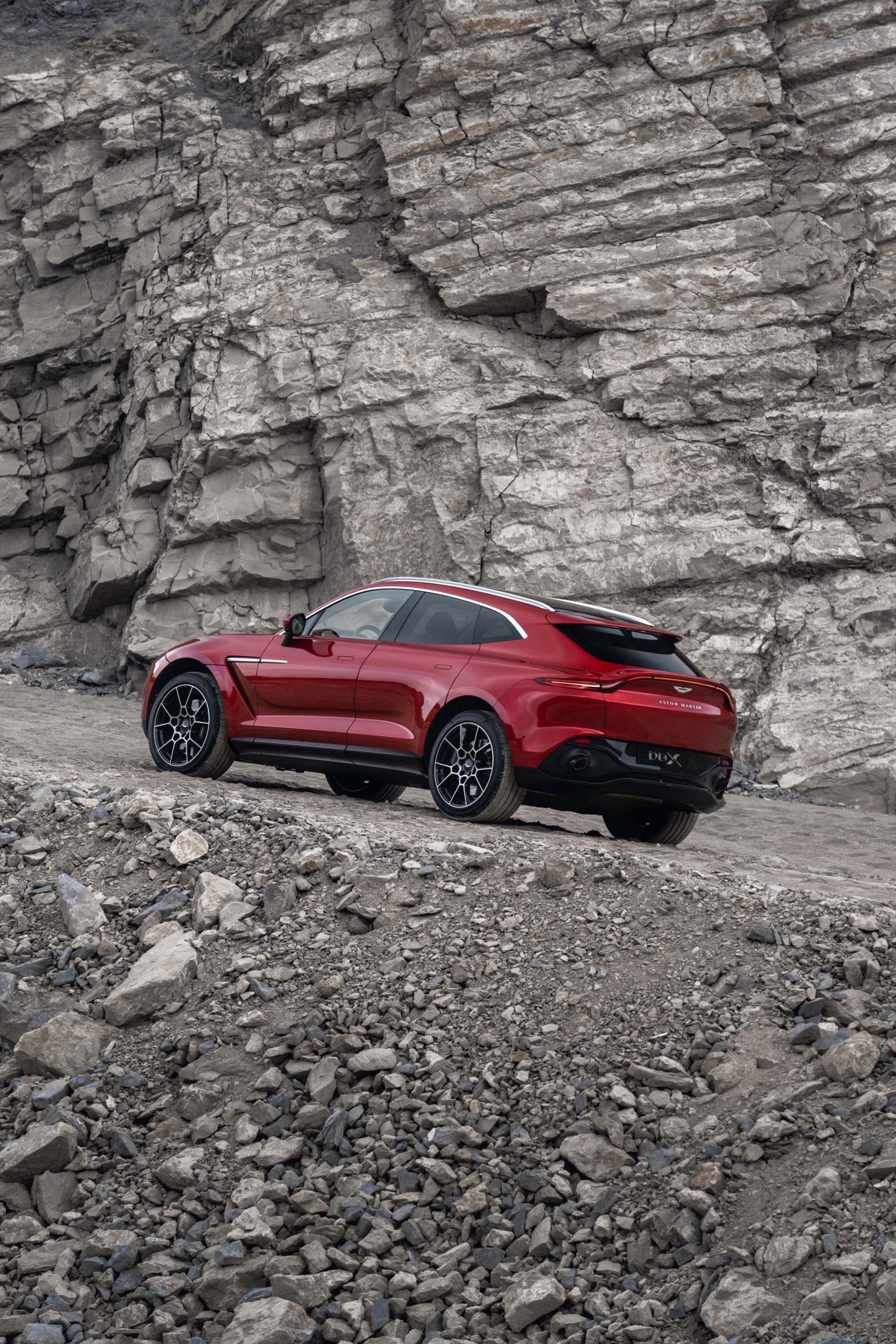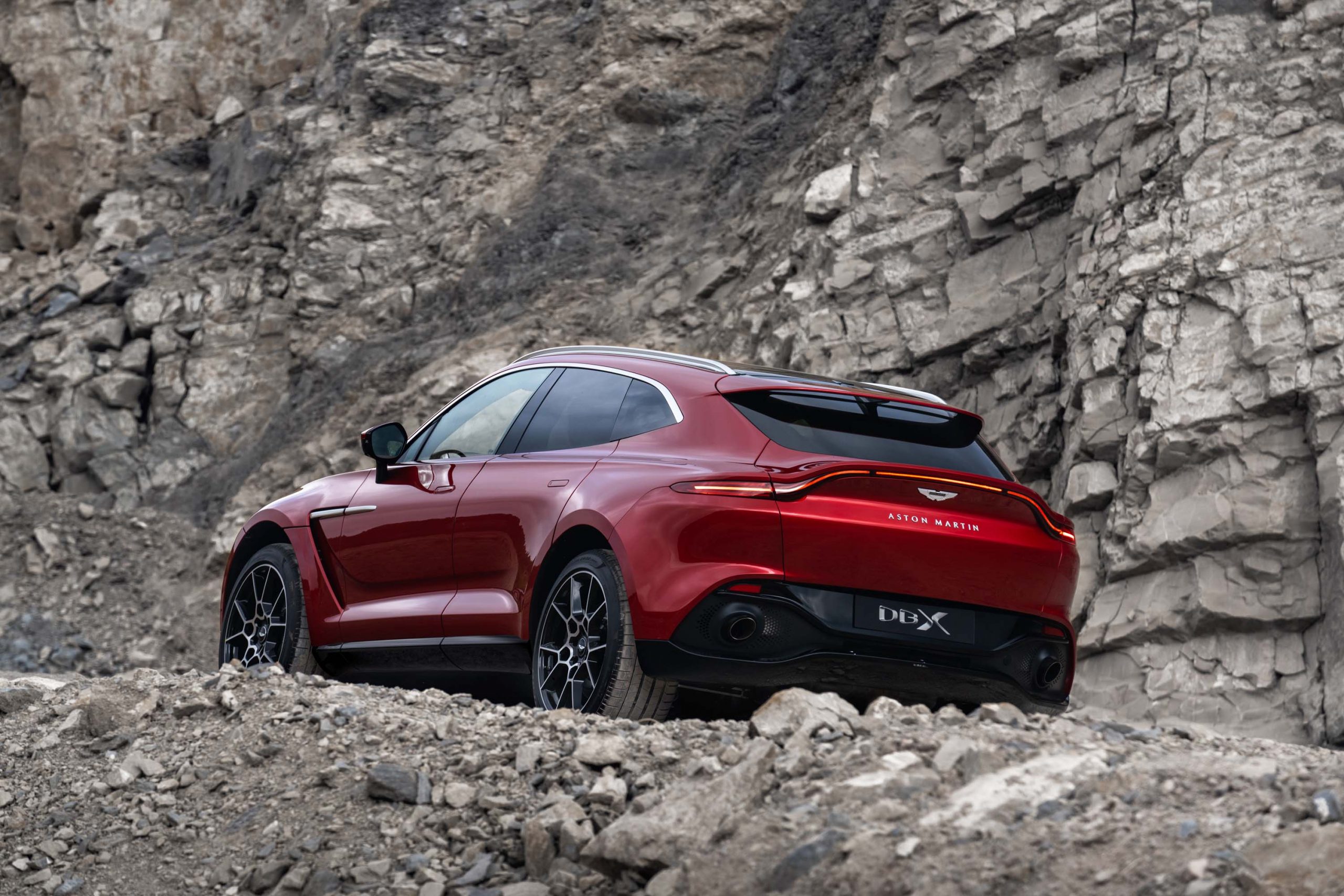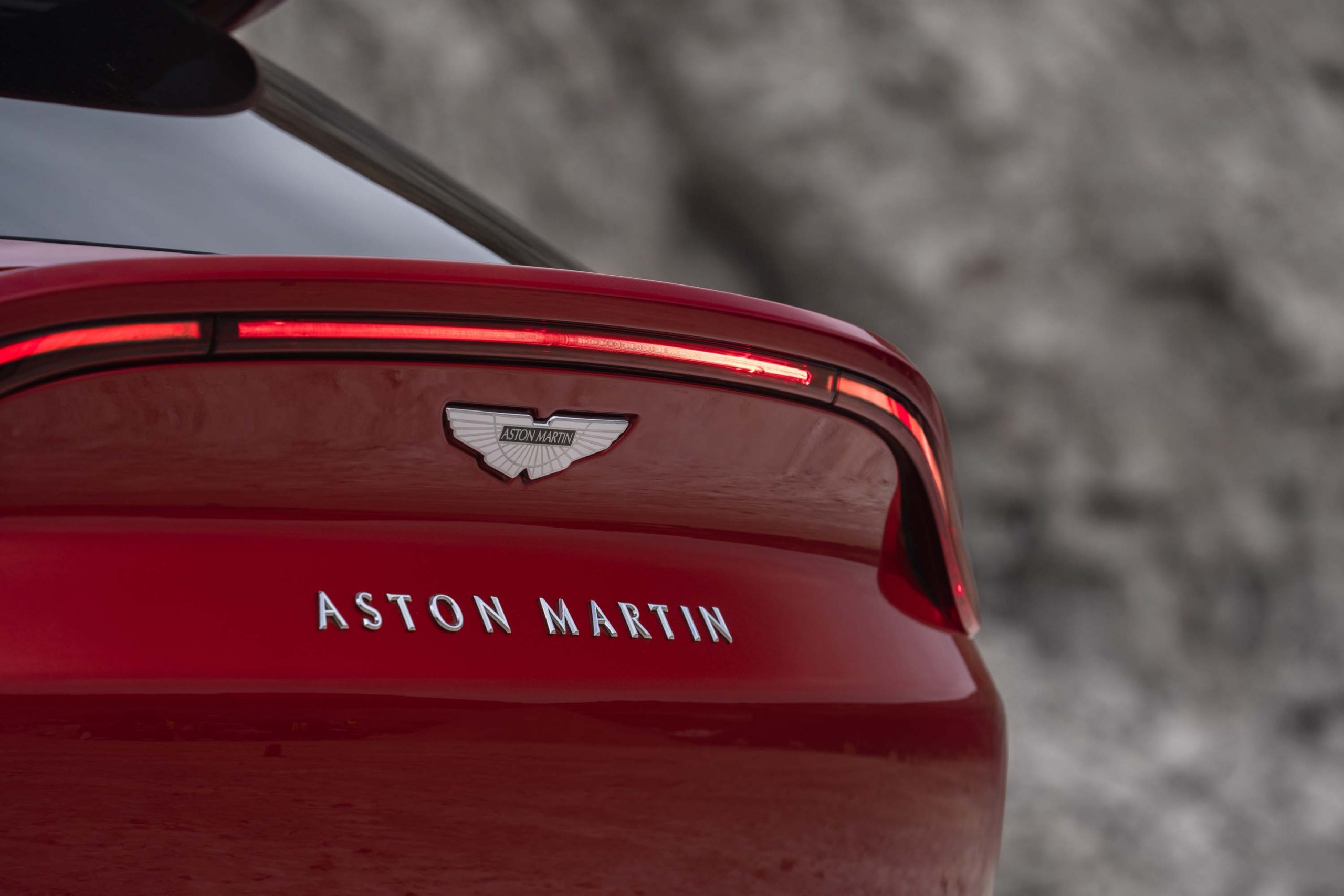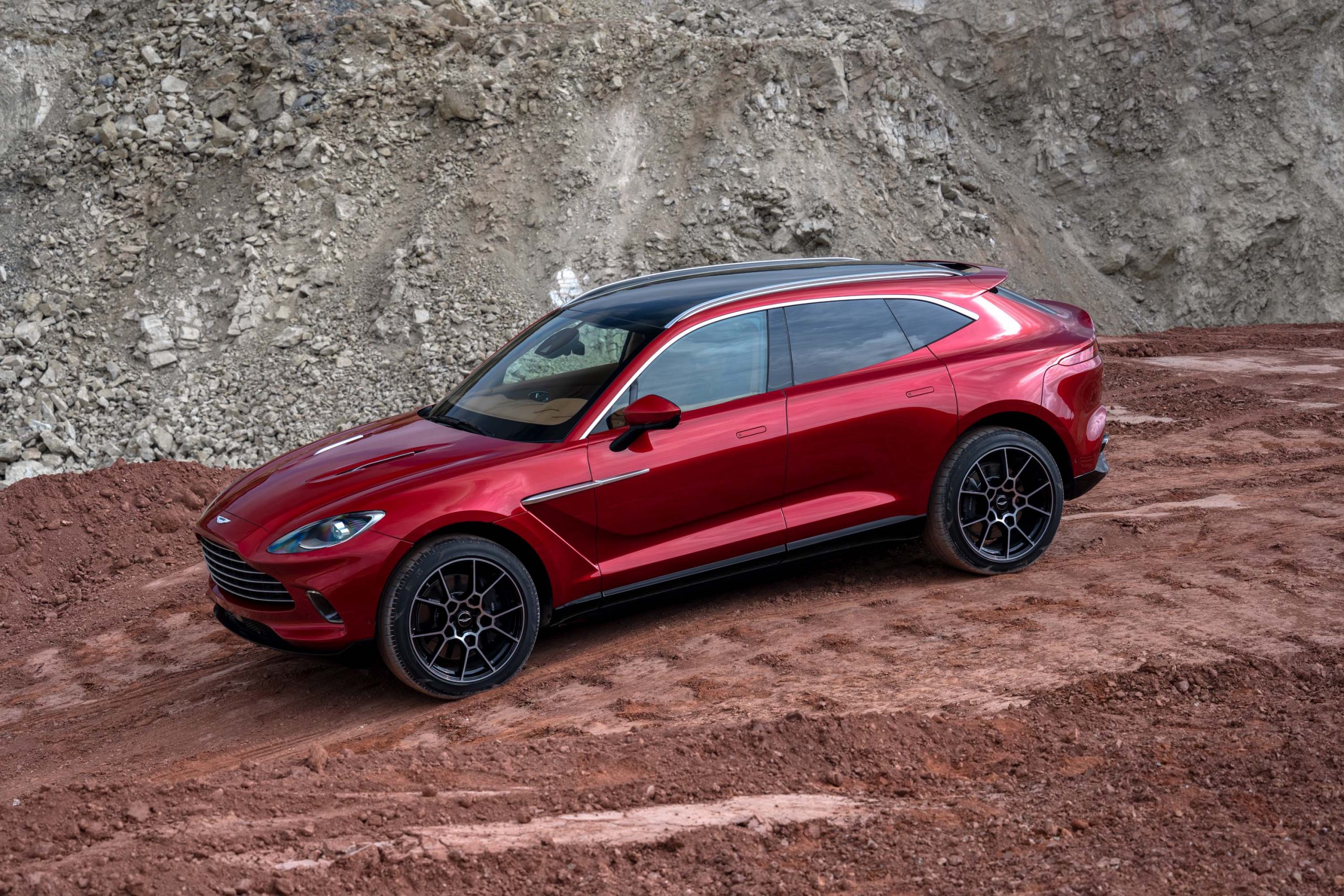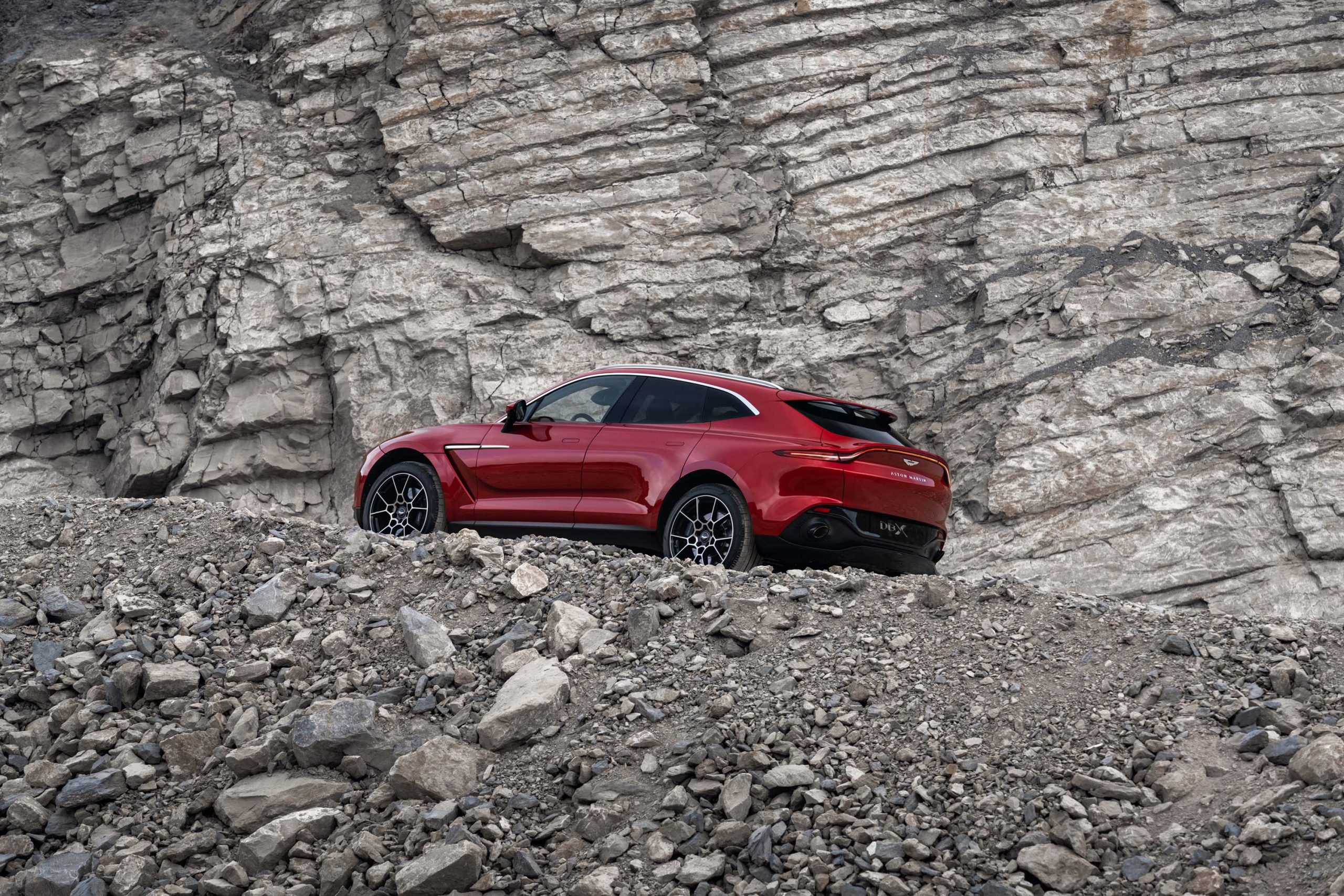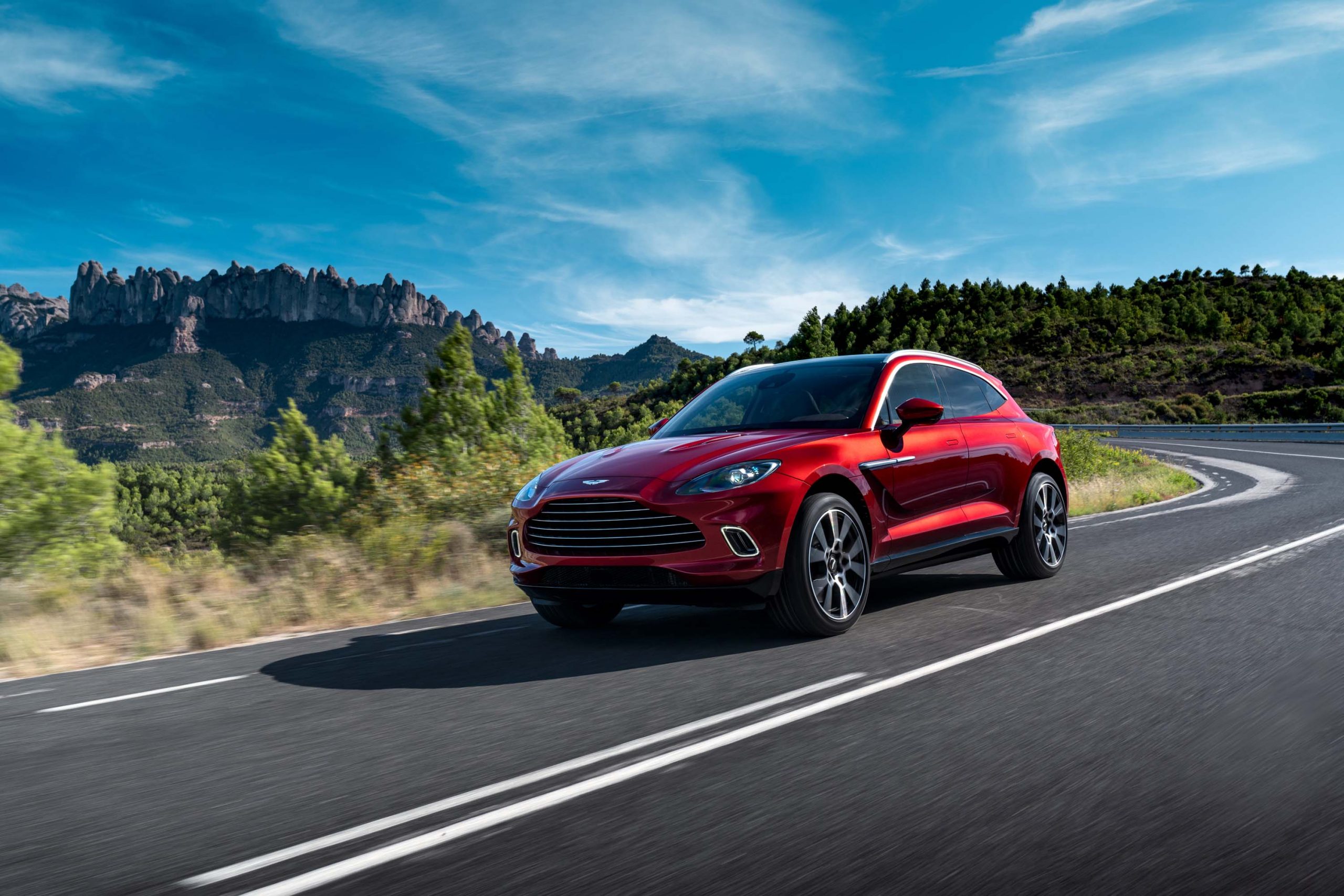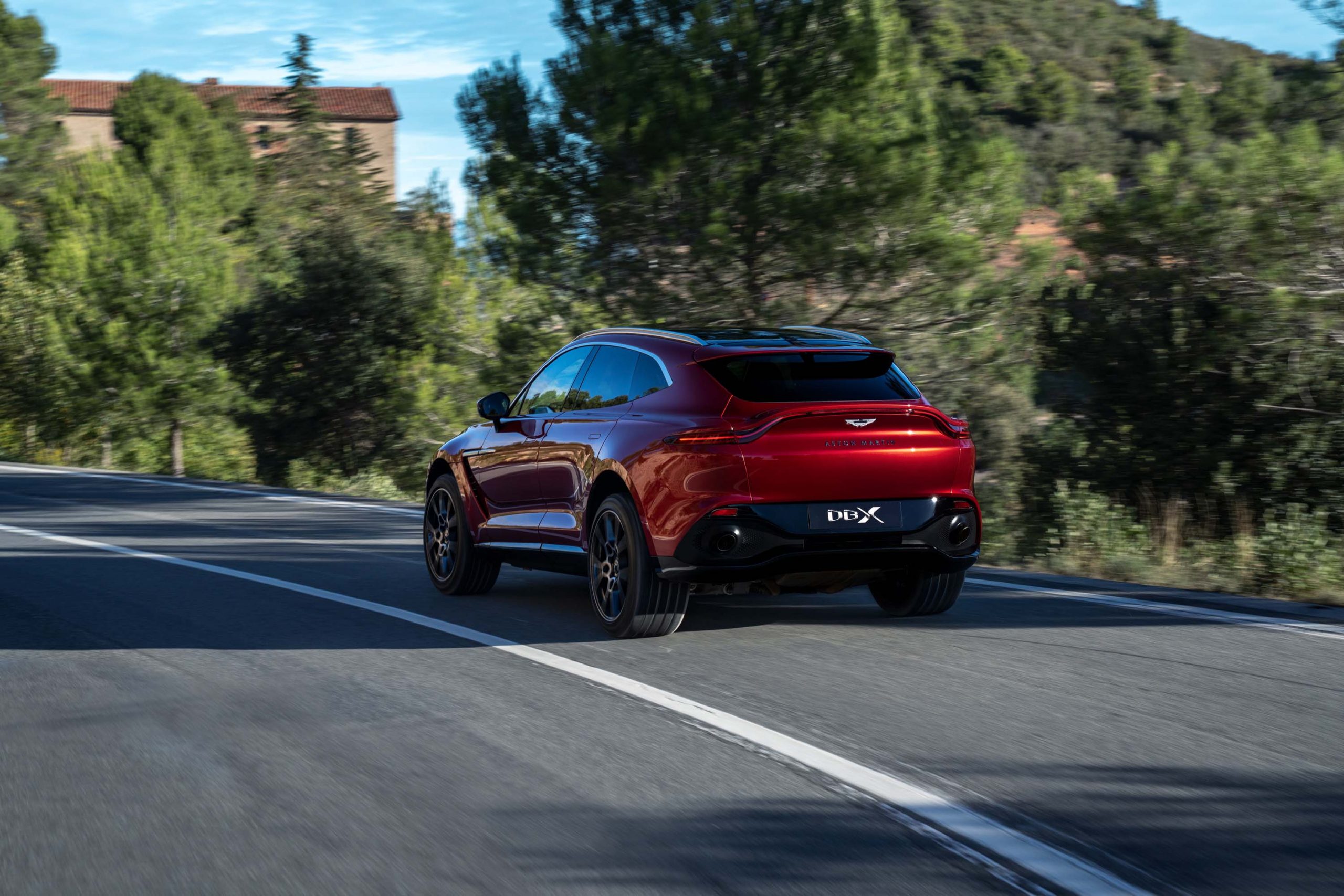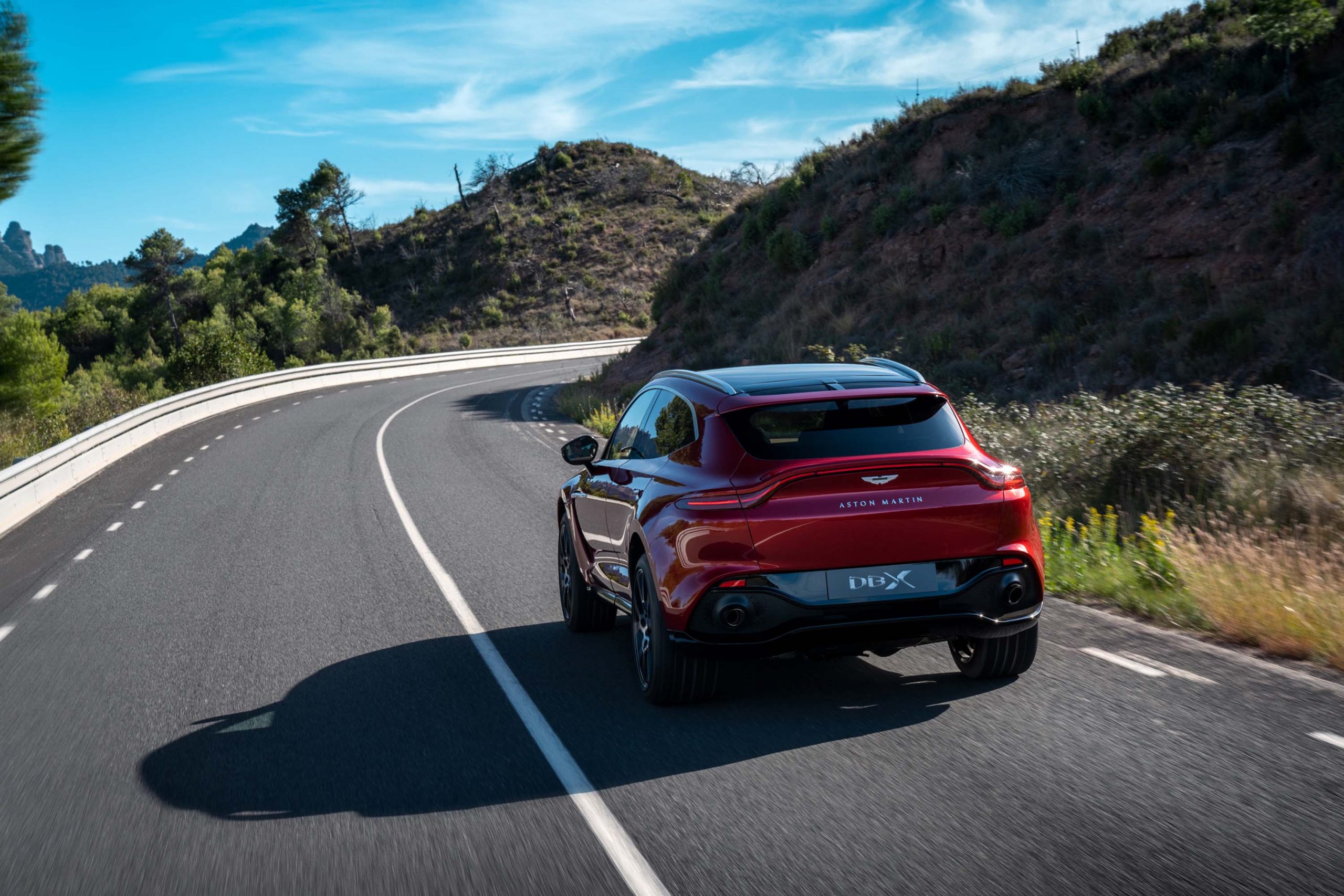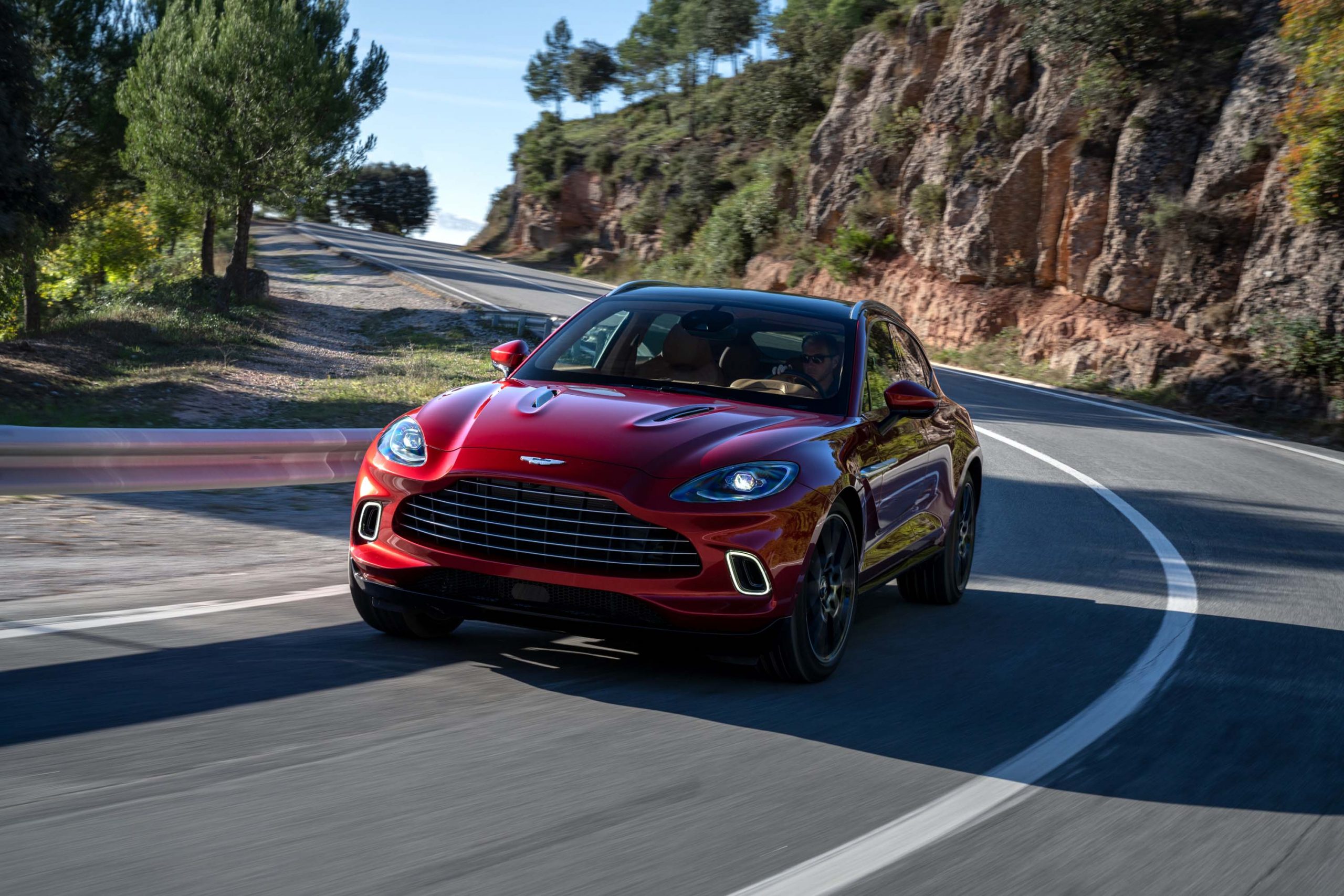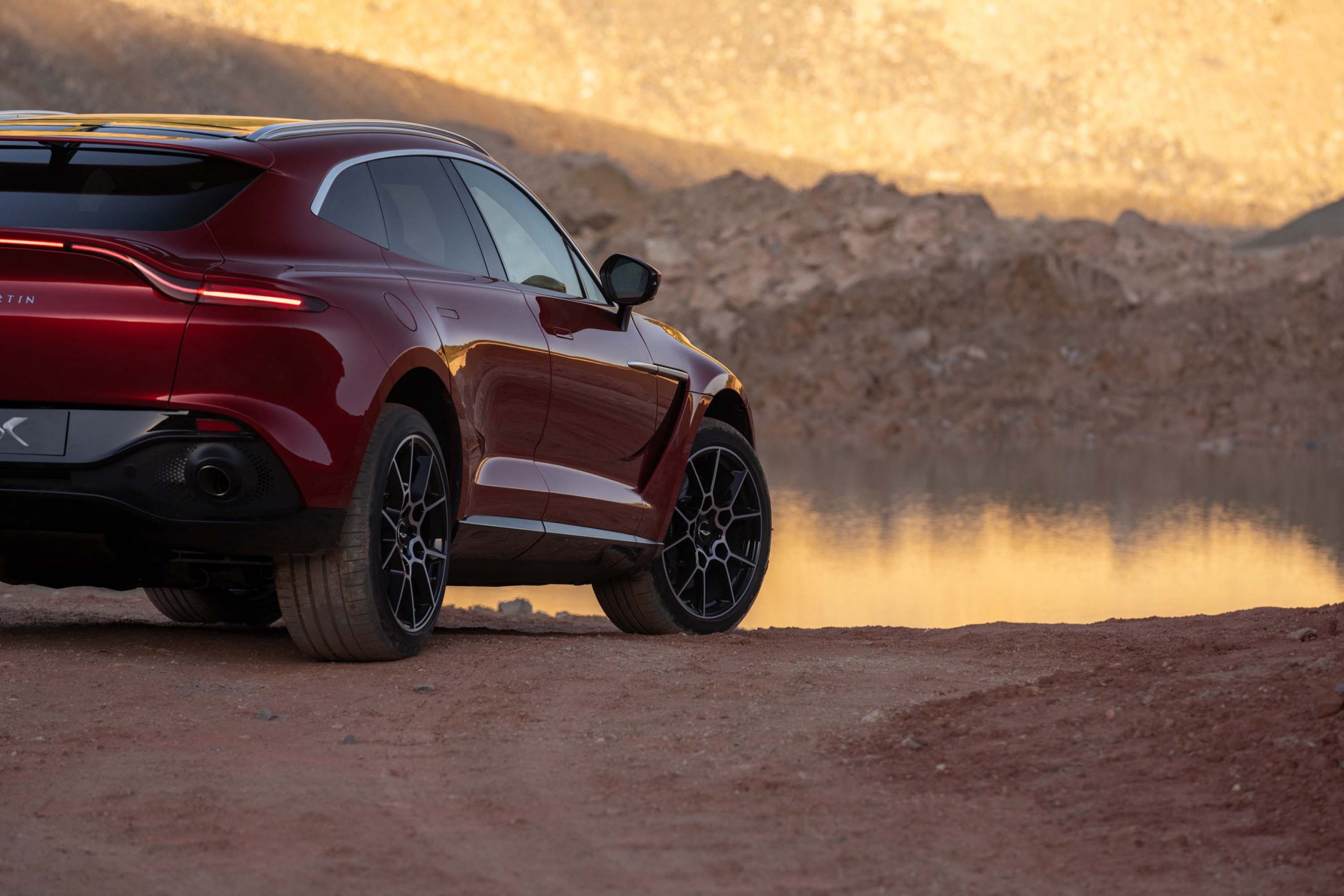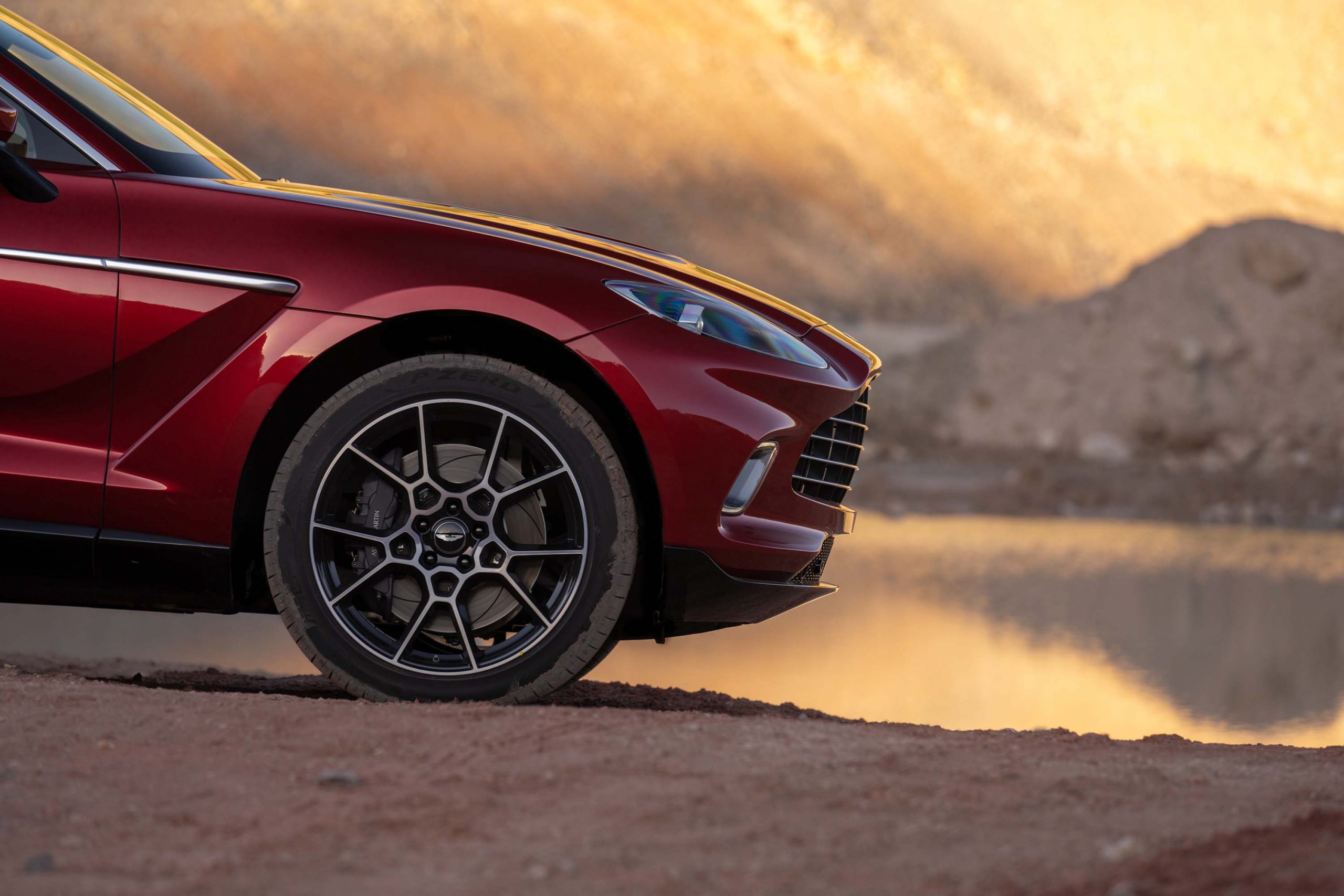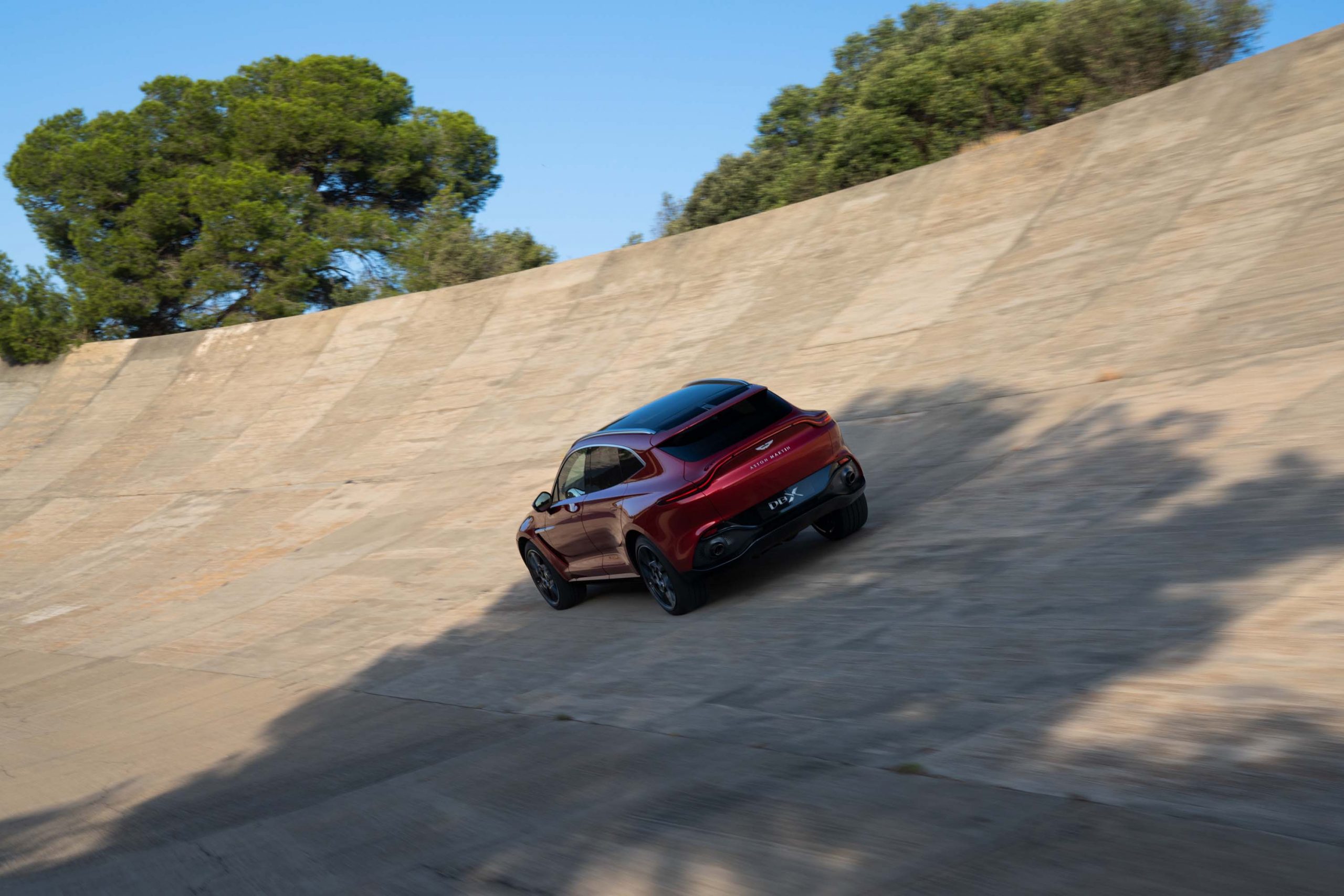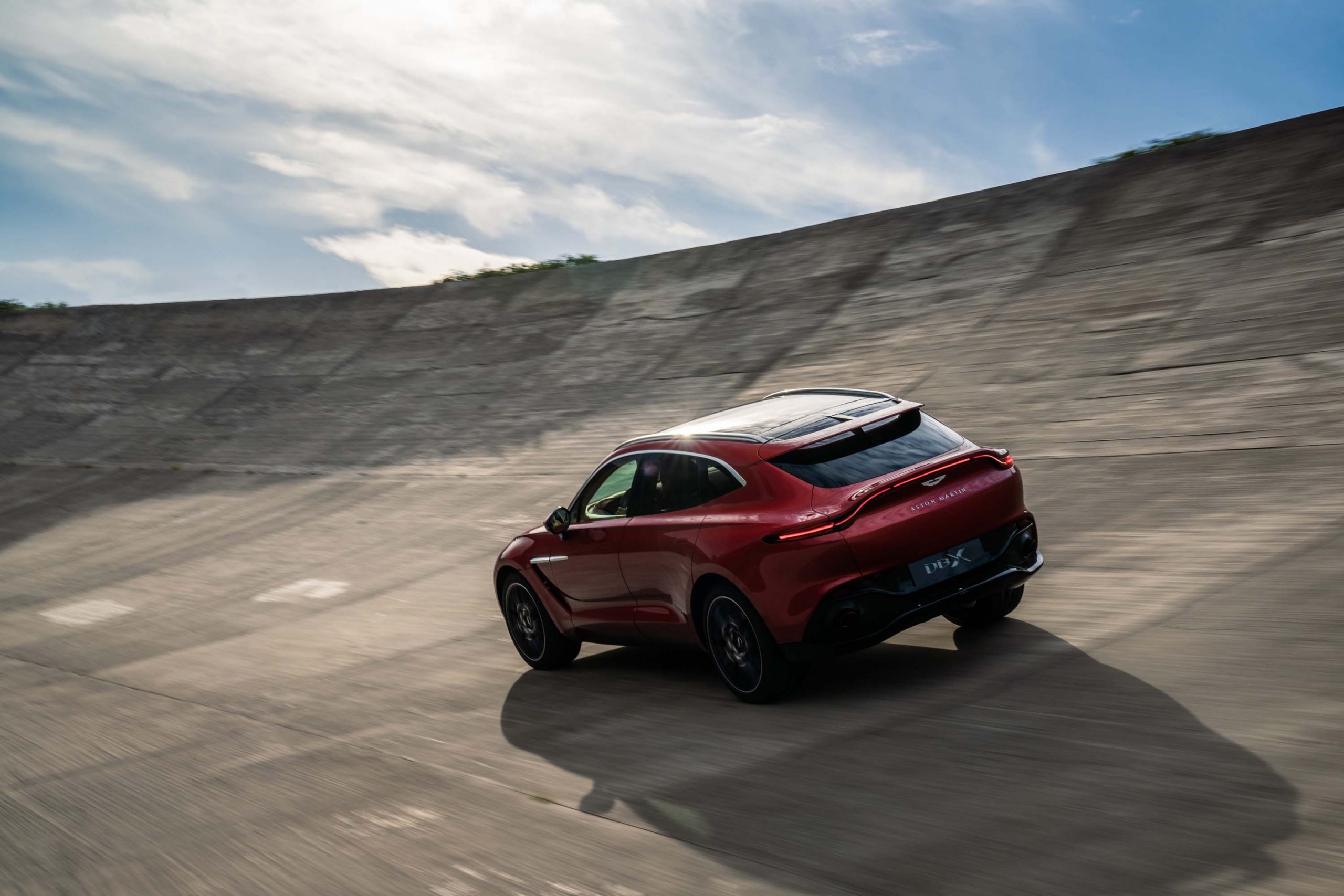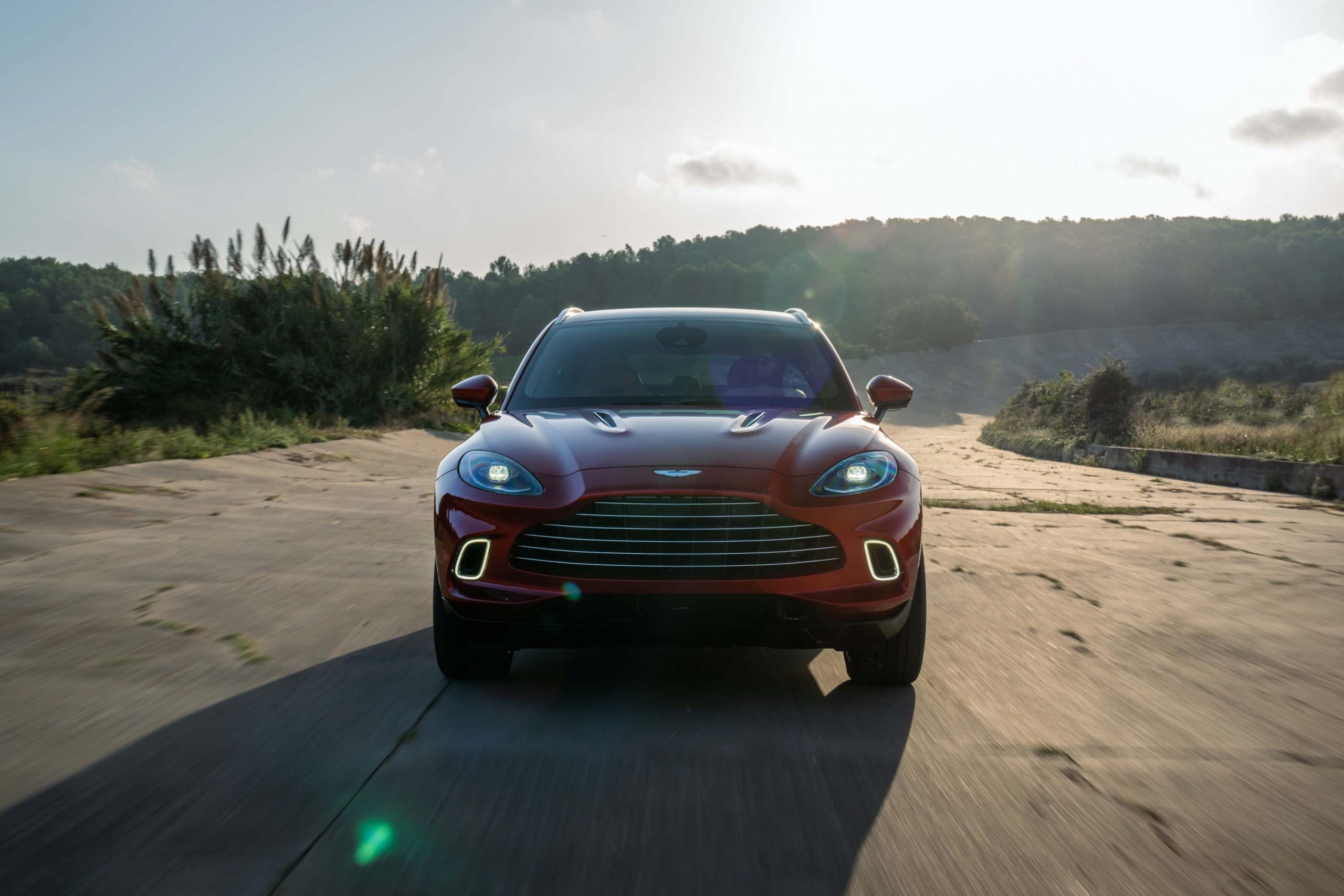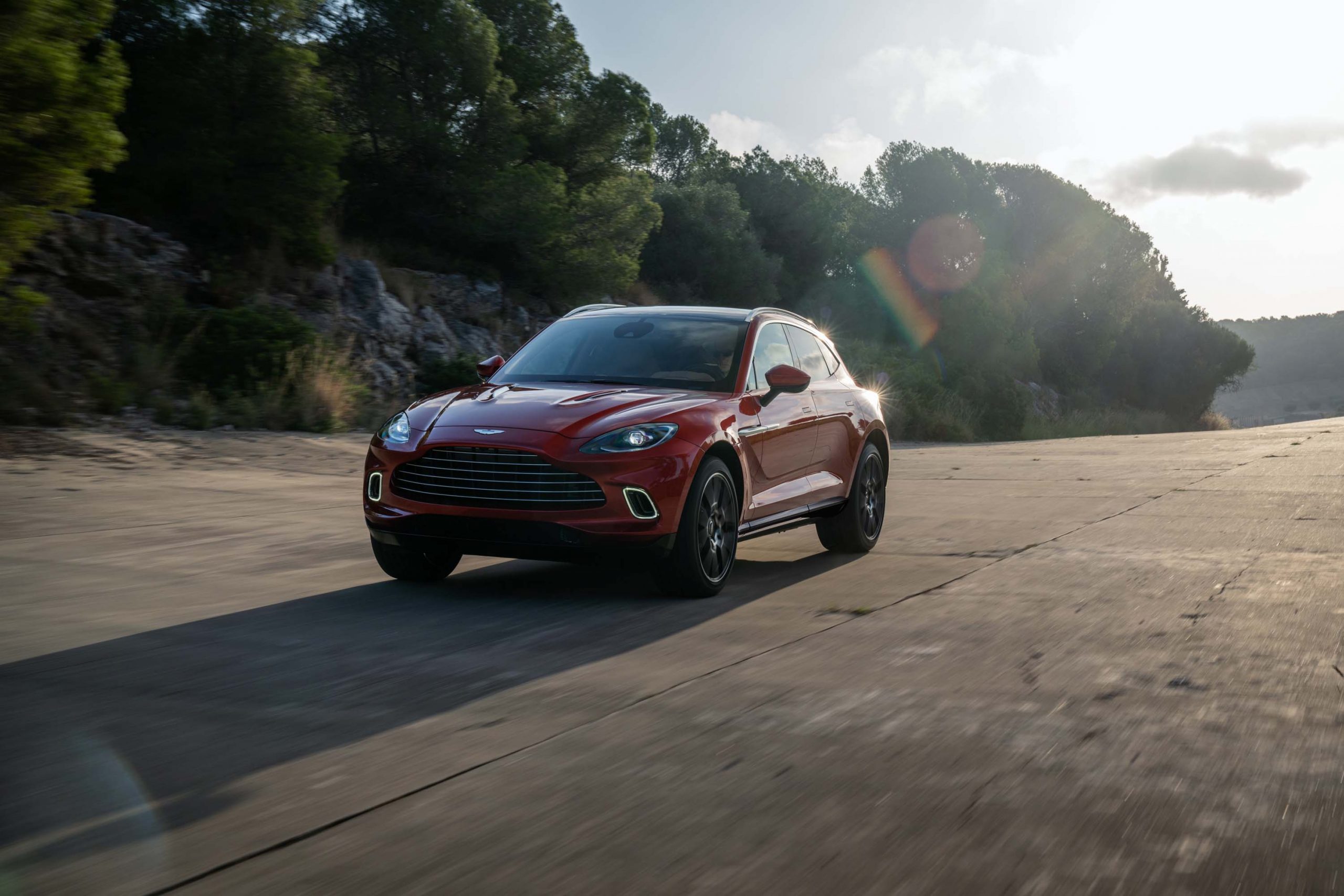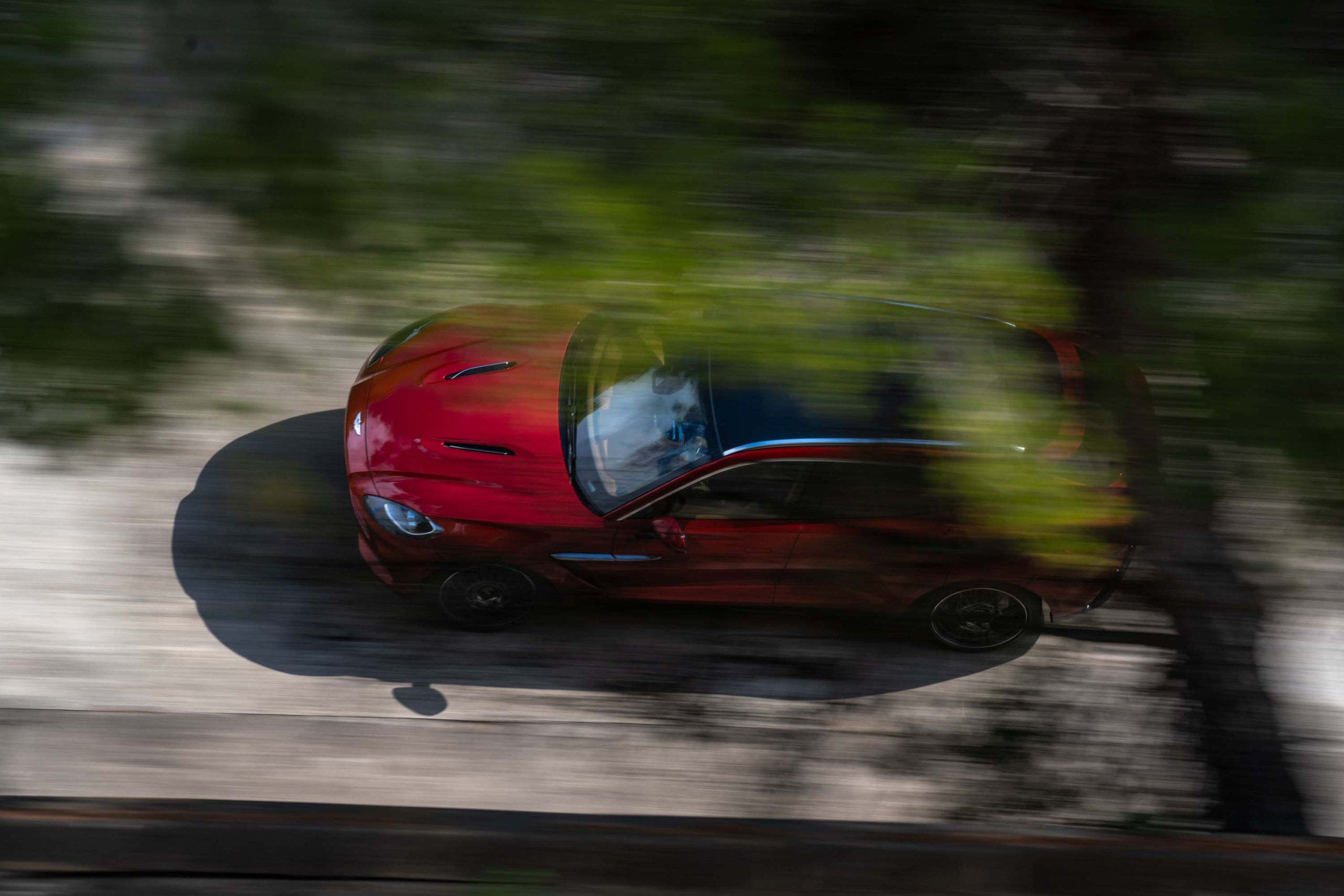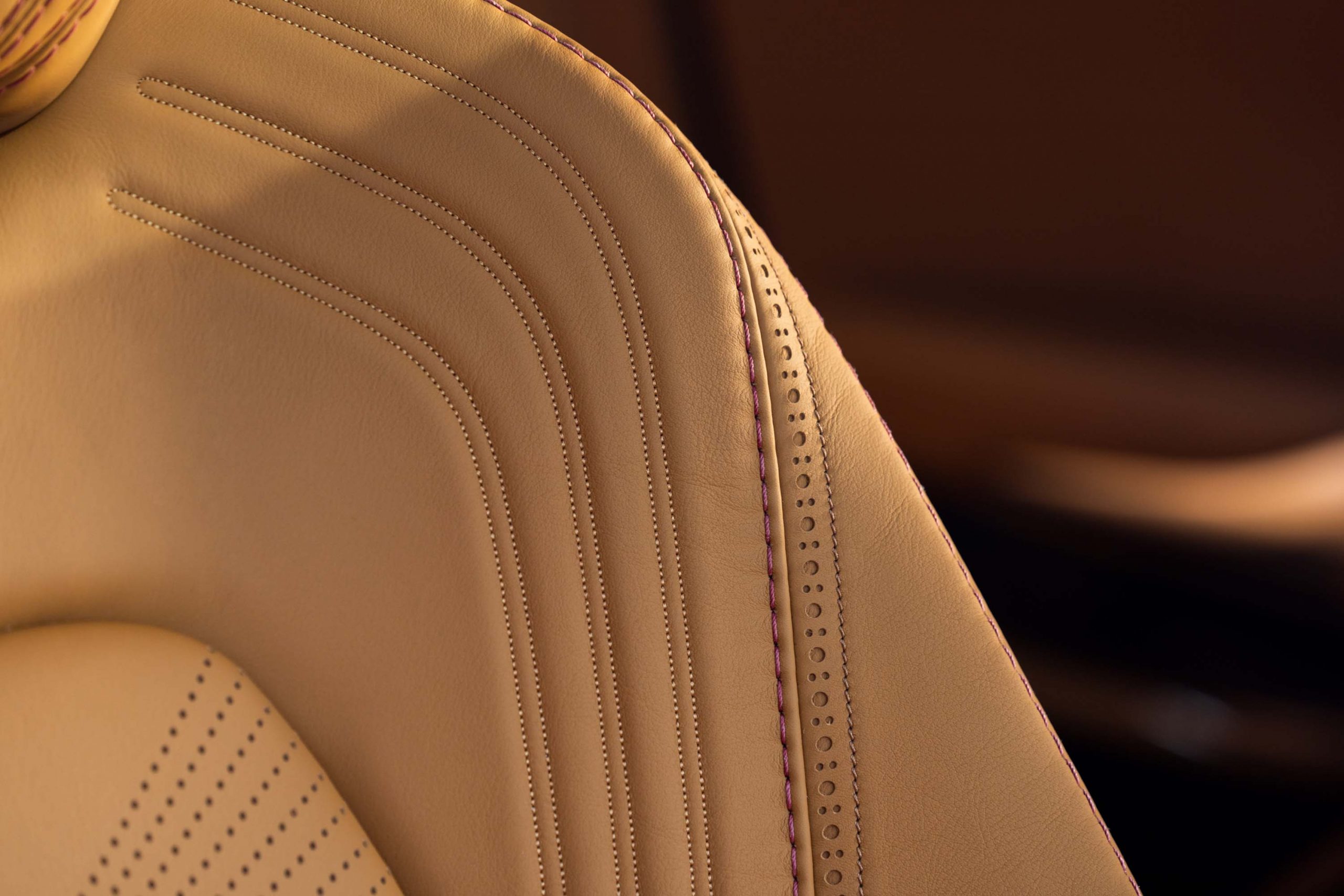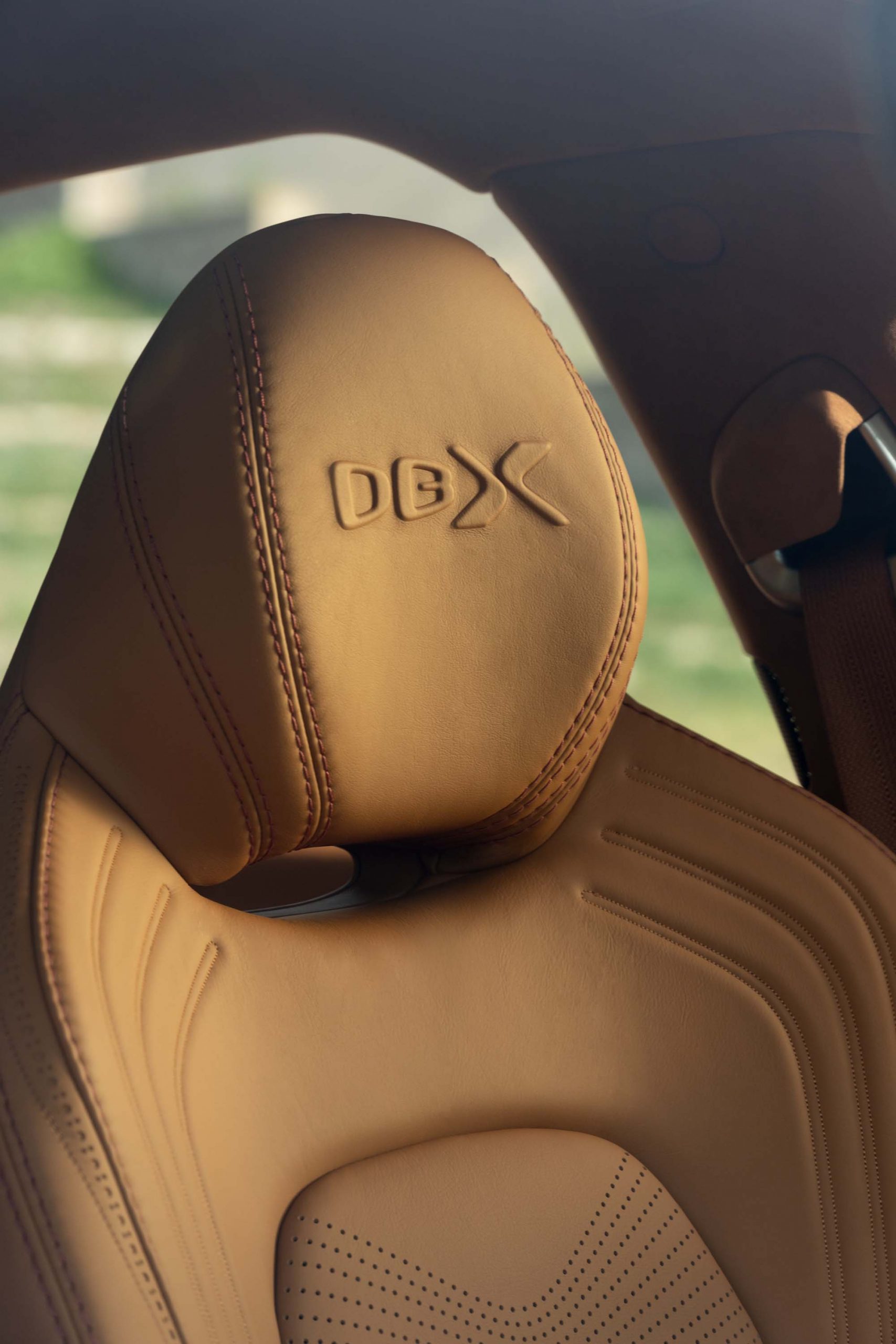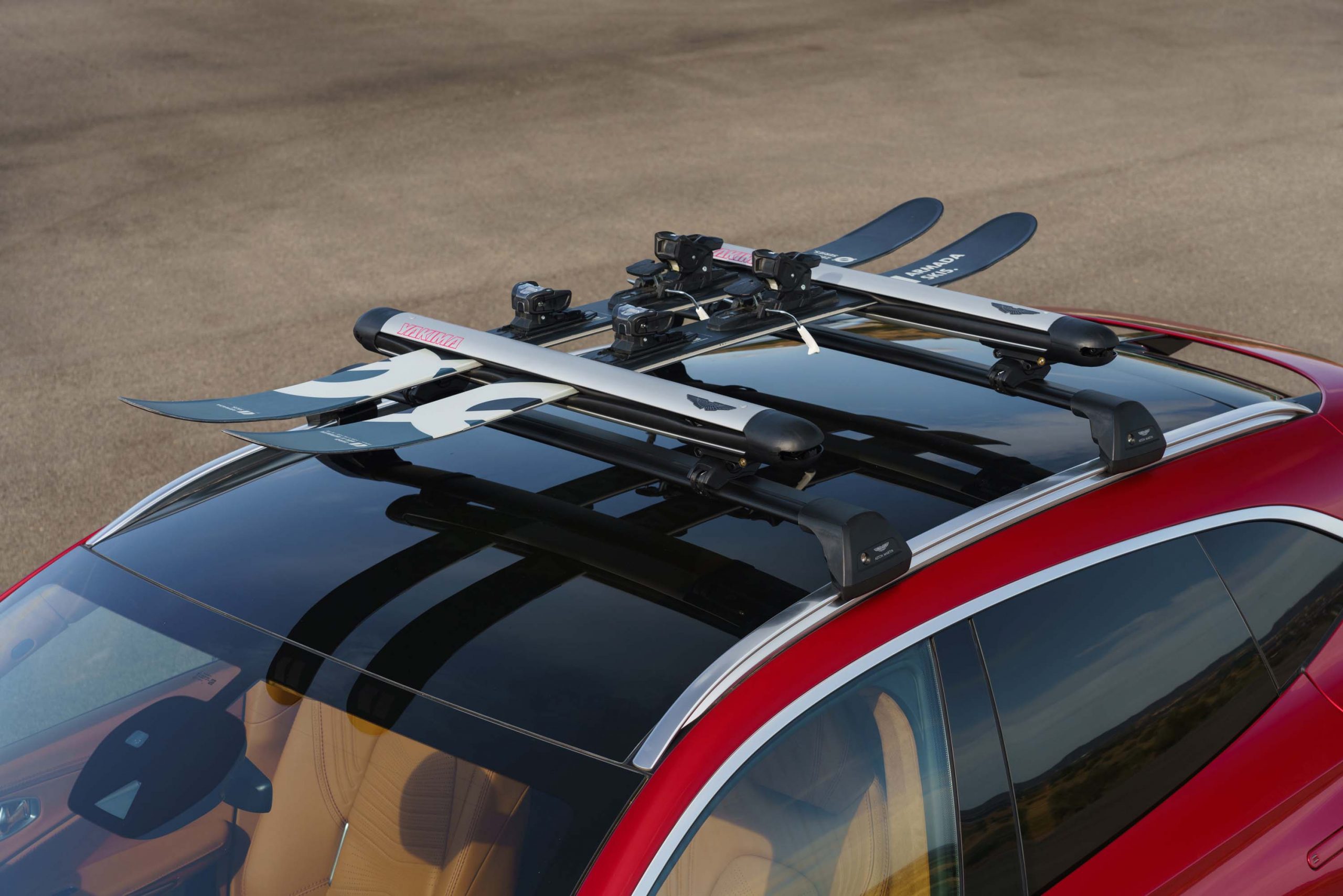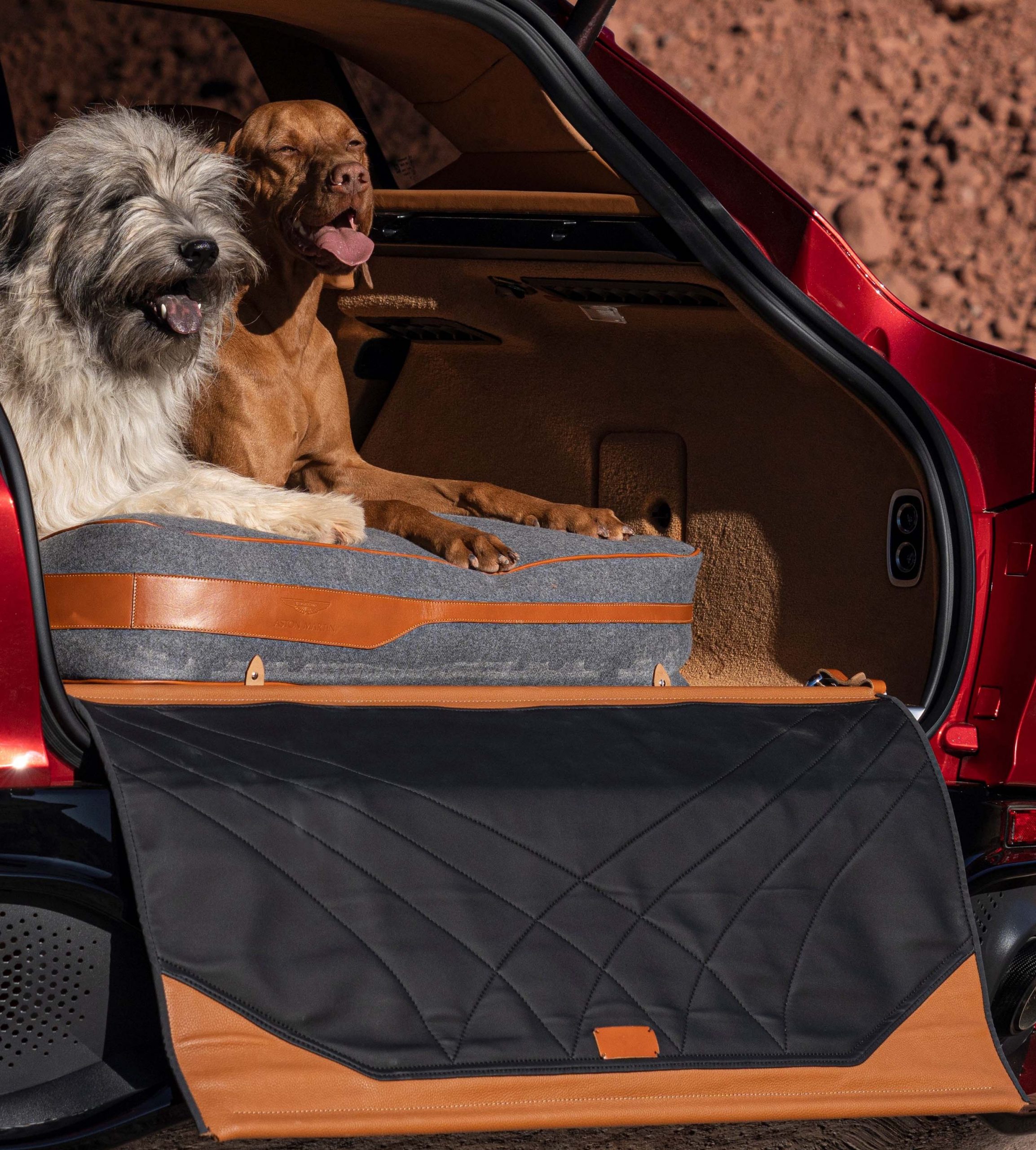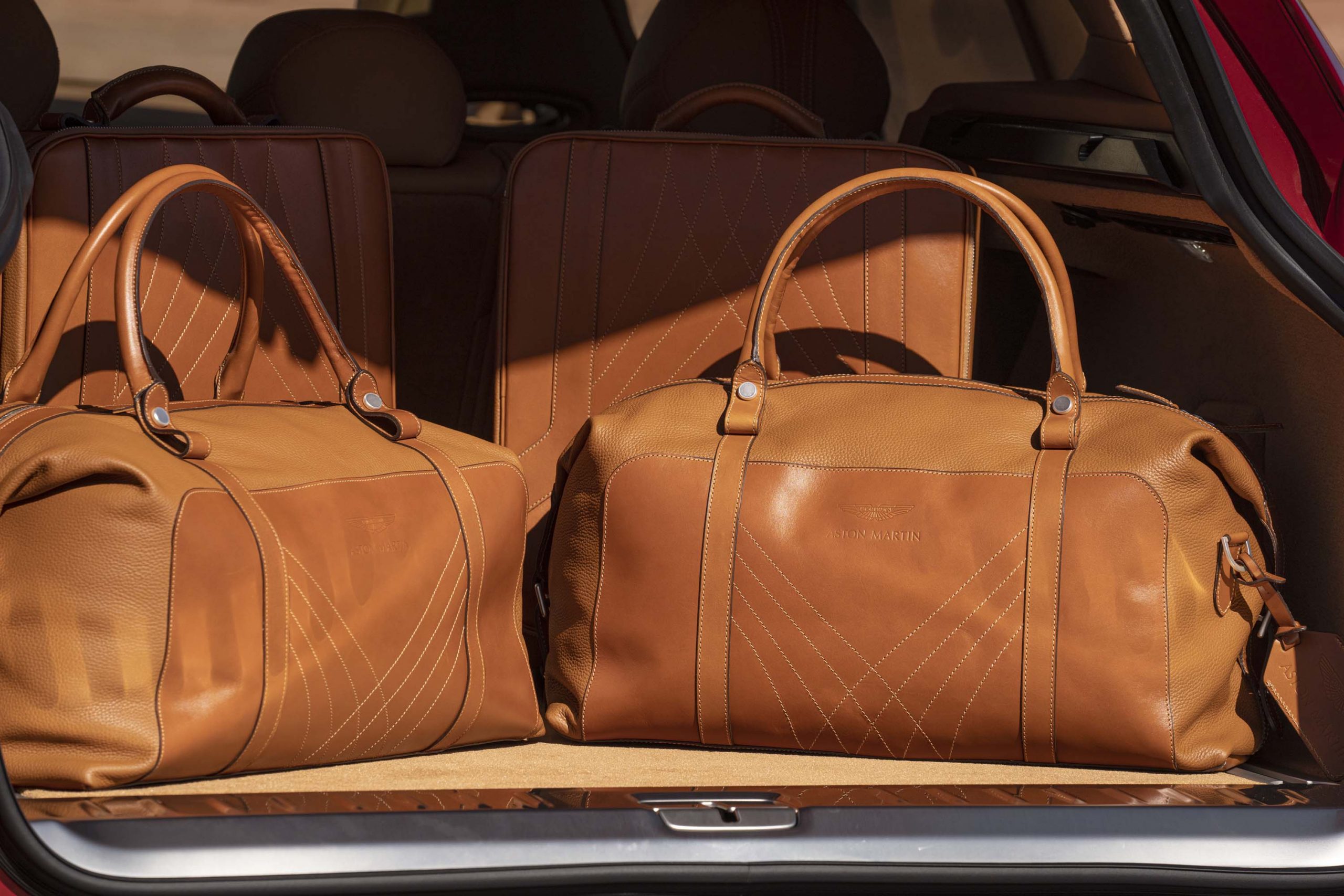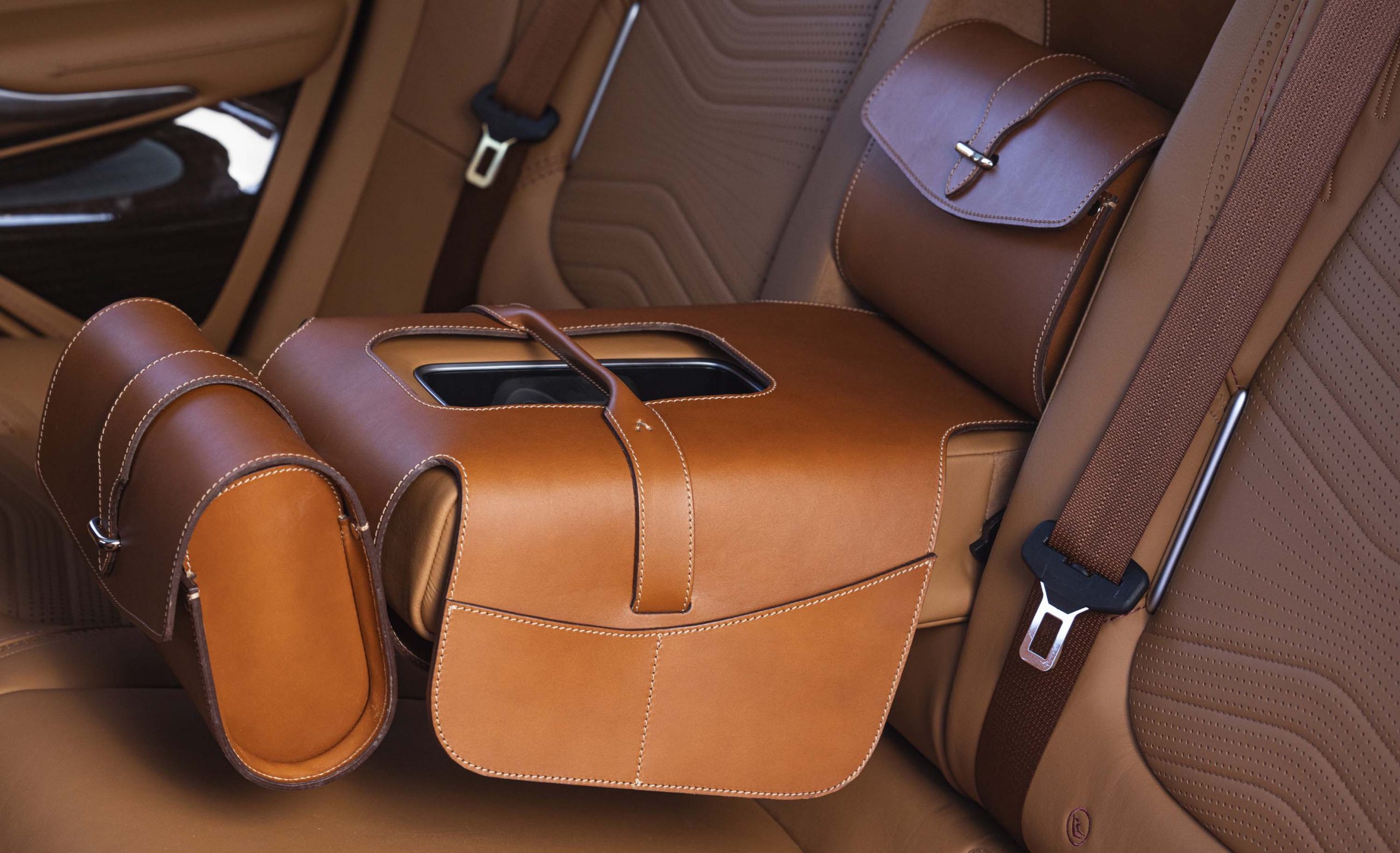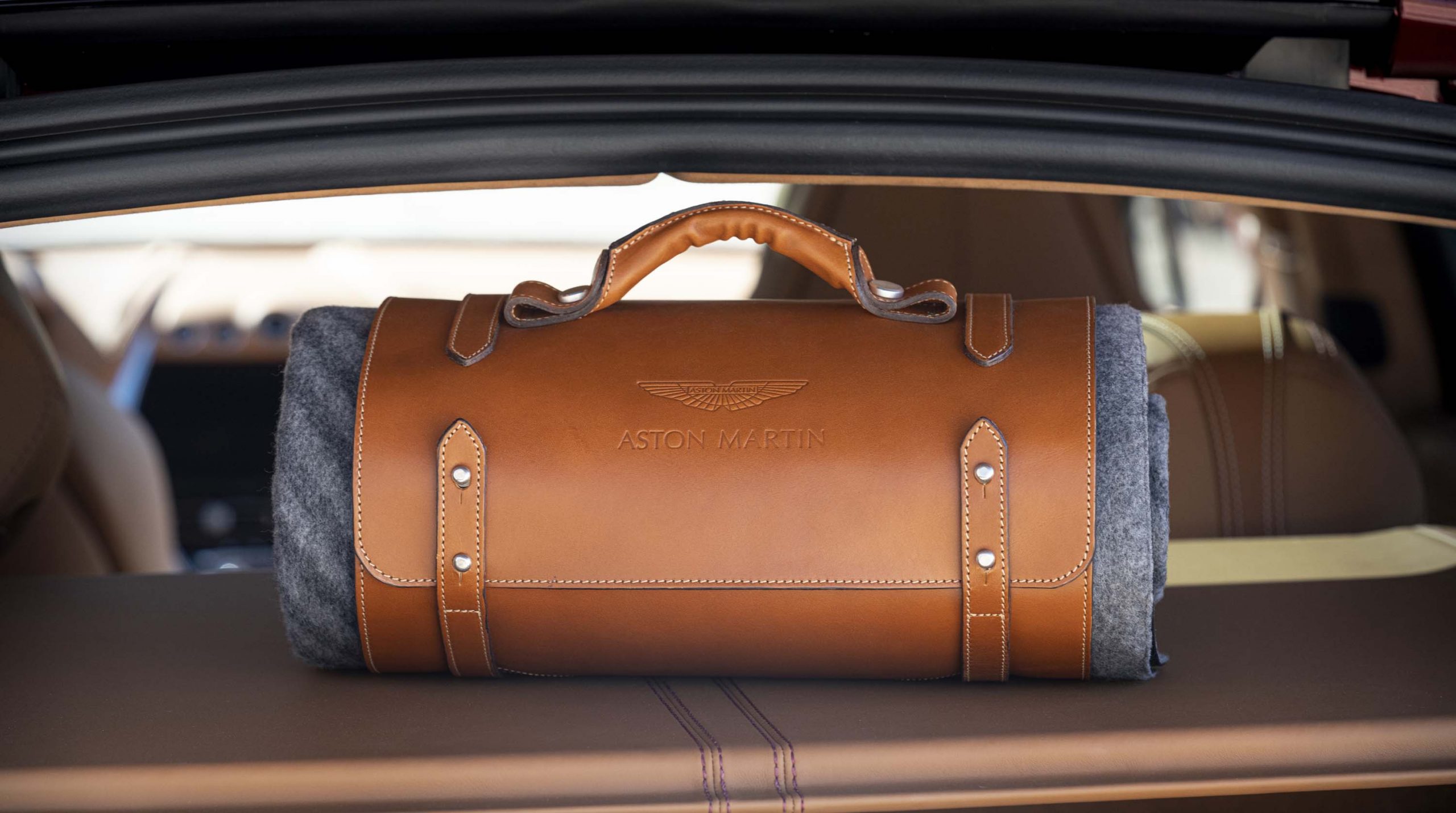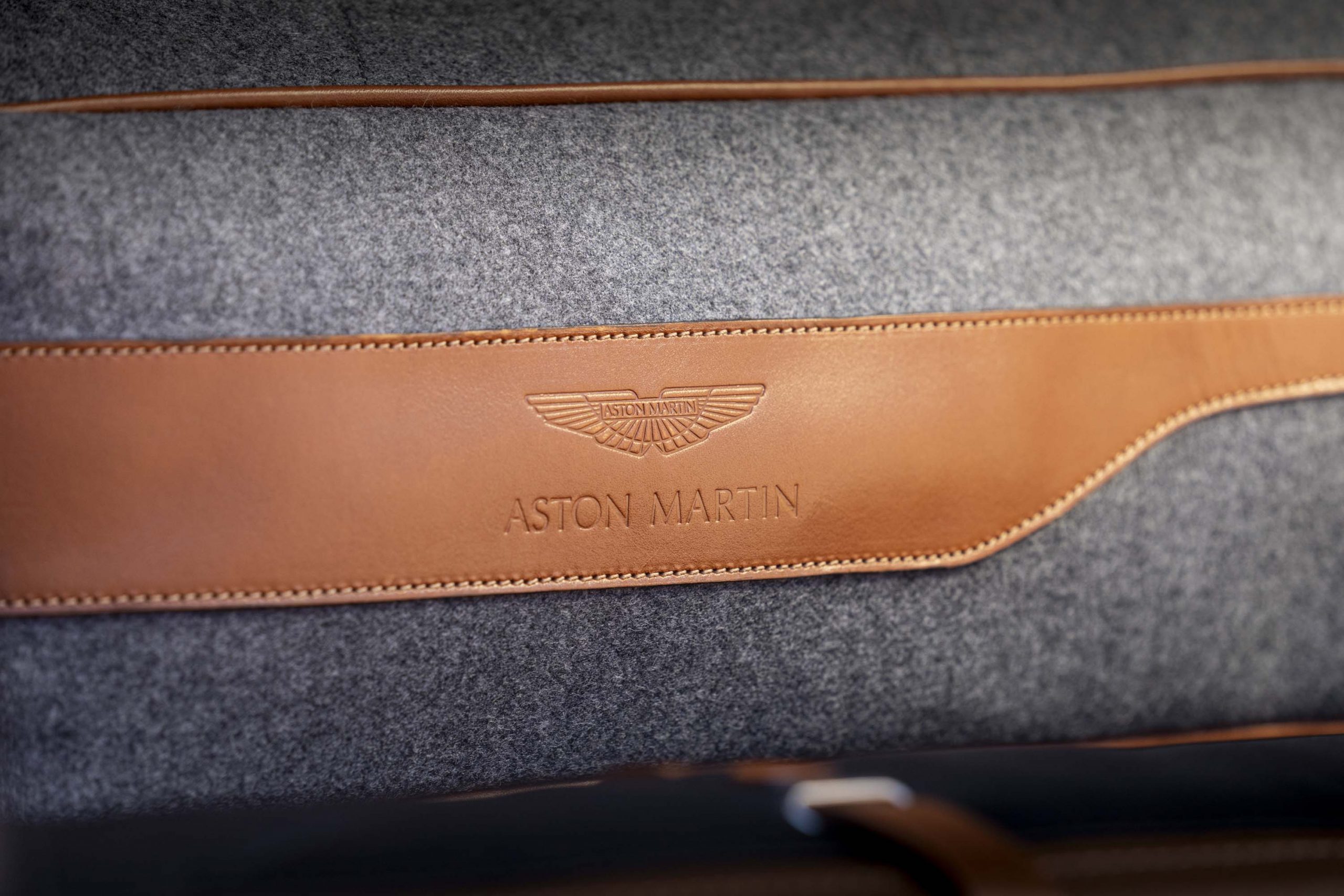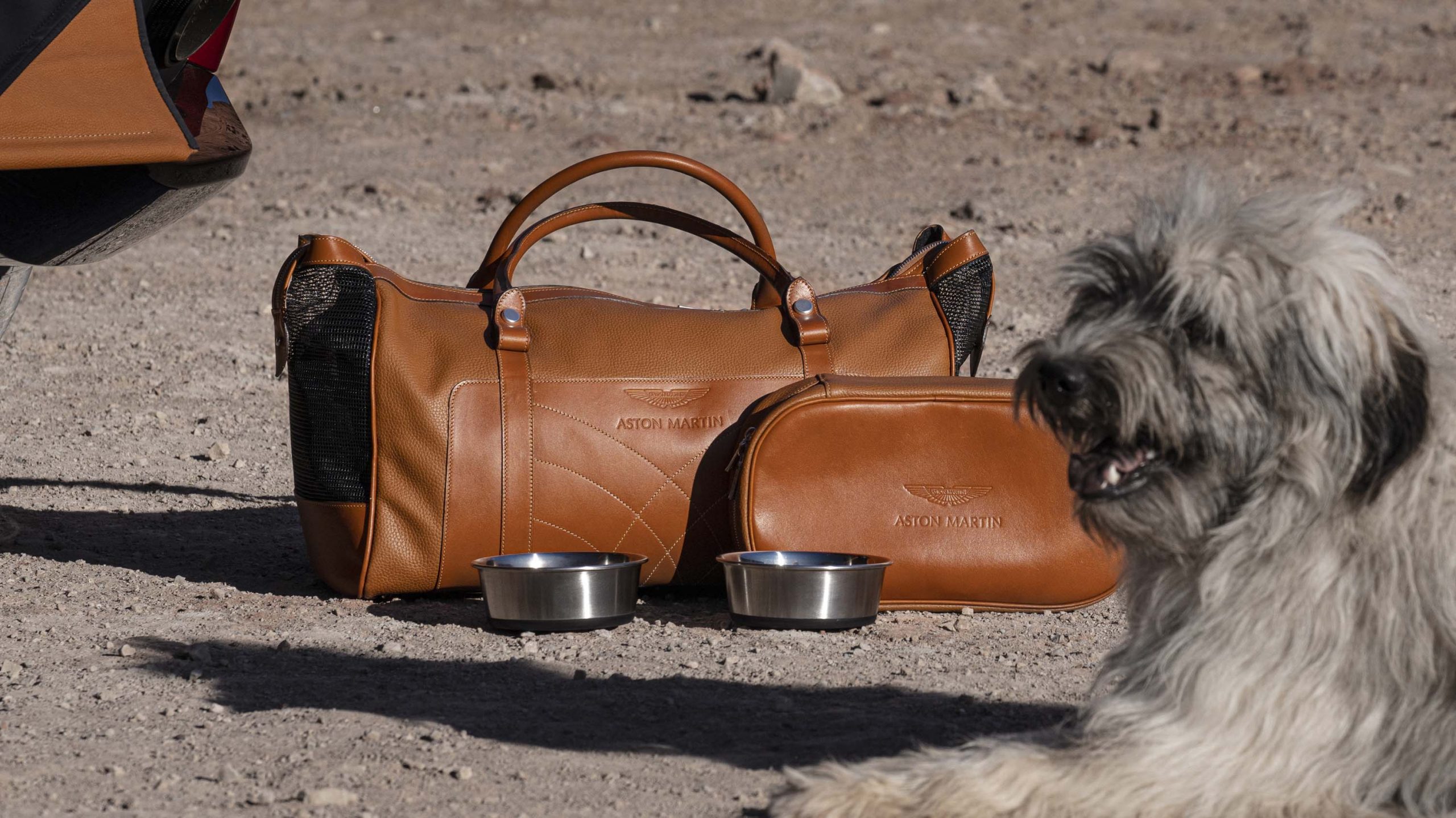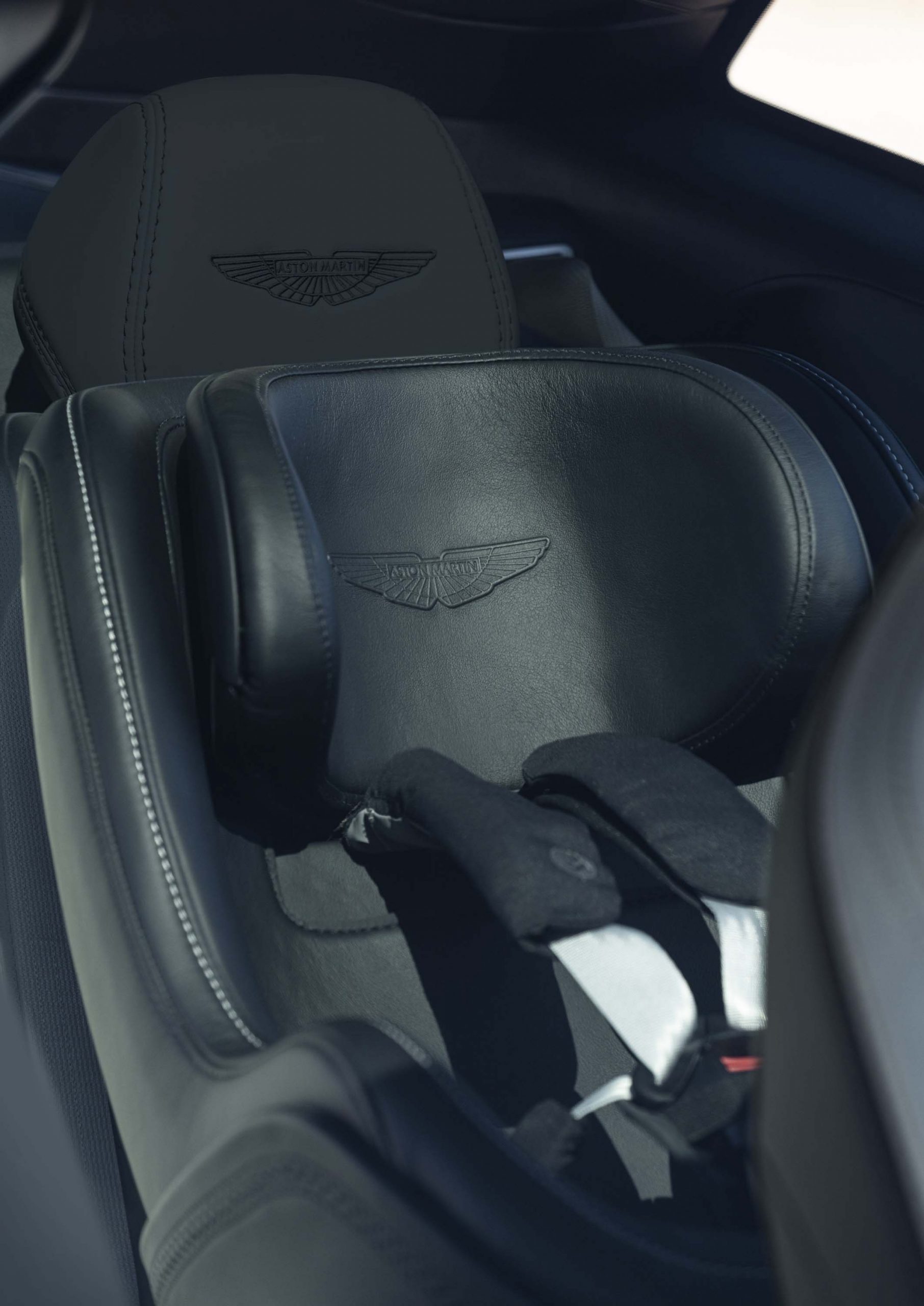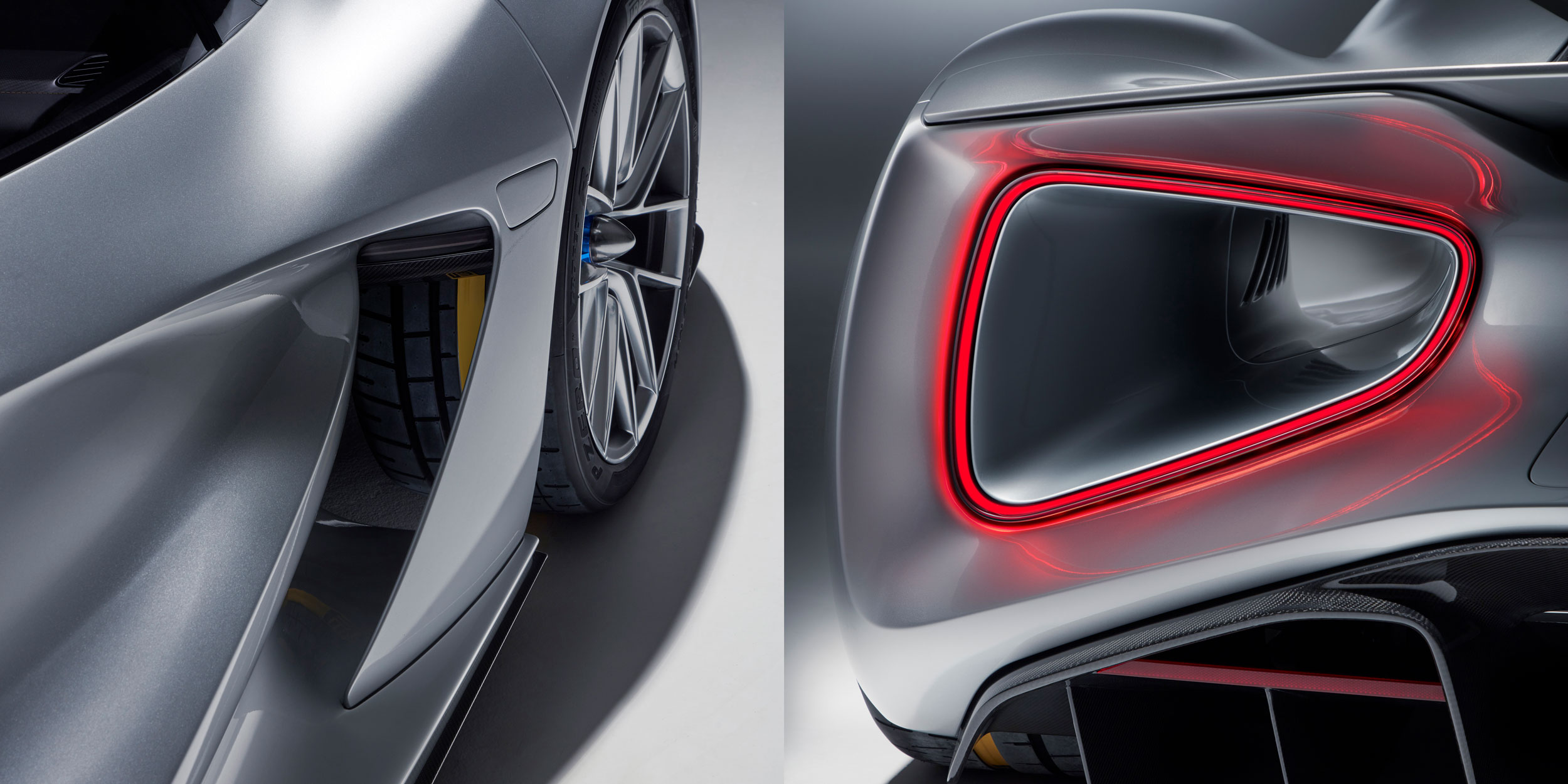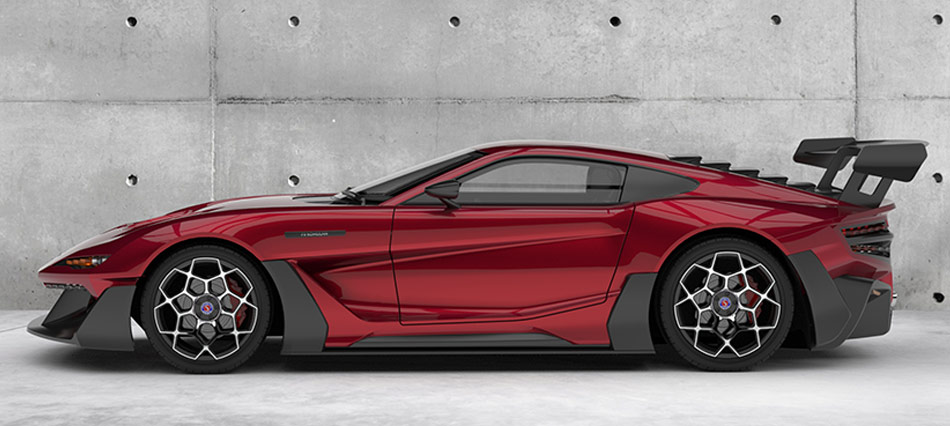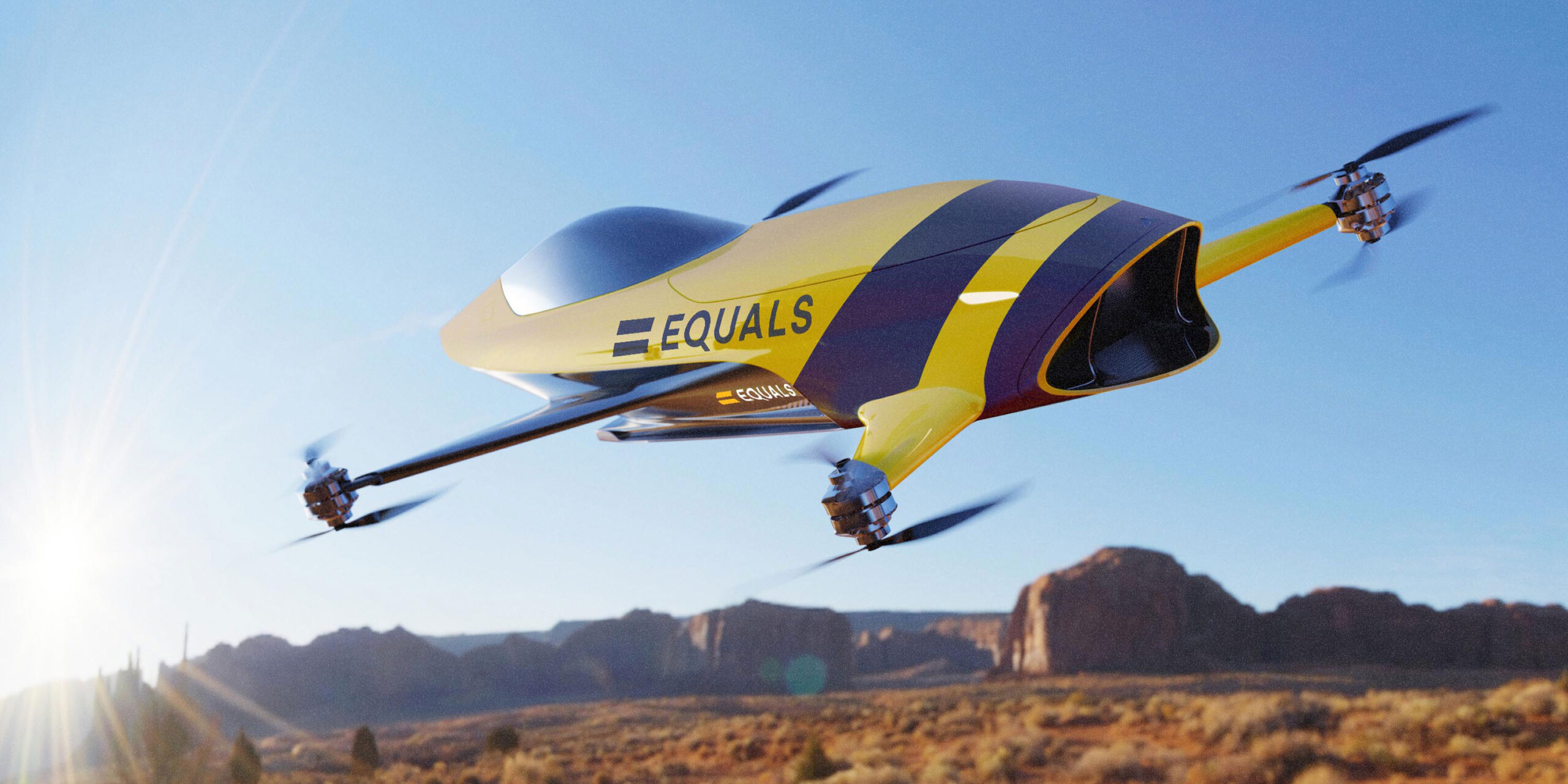Aston Martin Unveils DBX: an SUV With the Soul of a Sports Car
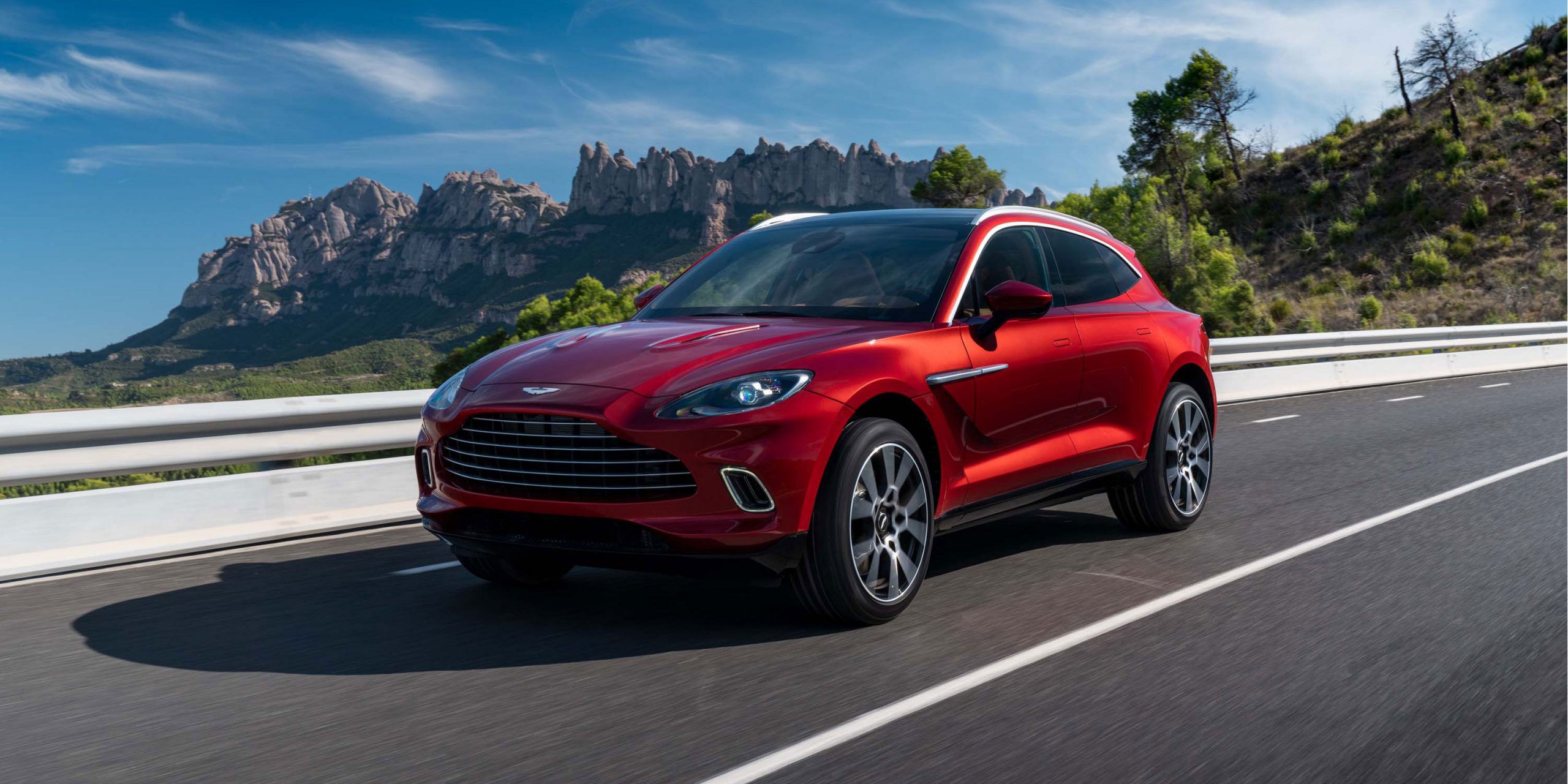
- Aston Martin launches fourth car of transformational Second Century Plan
- First SUV for 106-year-old luxury British marque
- Delivers broadest design brief of any Aston Martin in history
- Broad range of capability from sportscar dynamics to off-road versatility
20 November 2019, Beijing, China: A bold new chapter and a landmark moment in Aston Martin’s illustrious 106-year history, Aston Martin has today unveiled its first SUV and a model that will propel the brand to new heights worldwide. That model, is DBX.
The culmination of an extensive development programme that began with physical testing in Wales last year and virtual development stretching back to 2015, DBX signals a new era in Aston Martin’s pursuit to deliver exceptional performance, style and usability in a segment previously unexplored by the world-famous manufacturer. Bringing both the versatility and indulgence expected of a luxury SUV with sports car levels of dynamic performance, DBX sets a bold new standard in this sector.
Aston Martin Lagonda President & Group CEO, Dr. Andy Palmer said: “I can’t emphasise enough how incredibly exciting and significant DBX is for Aston Martin. Through its development alone, this beautiful SUV has already taken the company into new territories and in inspiring directions. DBX also marks a key moment in the delivery of the third and final phase of our Second Century Plan, not only representing the promised expansion of our portfolio but also signaling the start of production at Aston Martin’s second manufacturing plant. We have both delivered this model through our expertise, but also by garnering invaluable experience and knowledge from external counsel, including our Female Advisory Board. This is a real landmark for this great British brand and I promise that DBX will reward all who experience it in their everyday lives.”
Set to be built in Aston Martin’s purpose-built manufacturing facility in St Athan, Wales, the foundation of DBX is a new dedicated SUV platform, something rarely seen across the sector. More than ever before, this clean sheet of paper has allowed all departments within Aston Martin to innovate and push the boundaries of what British design and engineering can create, resulting in a truly remarkable product.
Utilising bonded aluminium, a construction method Aston Martin has refined through the development of its sports cars, the body structure is both very light and incredibly stiff, assisting in the delivery of an overall kerbweight of 2,245kg. Right from its genesis, it was designed to allow maximum room in the cabin, putting a premium on refinement and class leading spaciousness for both front and rear occupants. Meanwhile, the exceptional stiffness inherent in the design of the new platform has also enabled DBX to achieve exceptional dynamics both on and off-road.
Adaptive triple volume air suspension has been combined with the latest 48v electric anti-roll control system (eARC) and electronic adaptive dampers to provide the new SUV with a huge breadth of ability. With its capacity to raise the ride height by 45mm or lower it by 50mm the air suspension gives any driver the confidence to tackle a wide range of terrain. While this of course provides benefits while on the move, the system can be further programmed to aid with ingress, egress and loading requirements, aiding on a practical level.
The adaptive triple chamber air springs enable variable spring stiffness, giving both luxurious comfort and dynamic prowess. Extraordinarily the eARC – capable of 1,400Nm of anti-roll force per axle – can limit DBX’s body roll for handling that is much more akin to that of a sports car than an SUV. This sophisticated system of adaptive air suspension, dampers and eARC allows for maximum ride comfort when transporting up to five occupants and their luggage, while maintaining a highly responsive and engaging dynamic capability.
Powered by a new version of the characterful 4-litre, twin-turbocharged V8 engine found in DB11 and Vantage, DBX features an impressive output of 550PS and 700NM of torque, carefully tuned to meet the specific needs of this model. With a sound character that is unquestionably Aston Martin, the active exhaust system ensures this is a luxury SUV that can sound refined one moment and exhilarating the next. The engine’s versatility isn’t restricted to its vocals either; the turbocharged V8 has cylinder deactivation to enhance fuel economy, yet it can also propel DBX from 0 to 62mph in 4.5 seconds and on to a top speed of 181mph.
Transmitting this power and torque to the ground is a nine-speed torque convertor automatic gearbox, allied to an all-wheel drive system with active differentials featuring an active central differential and an electronic rear limited slip differential (eDiff). This allows the torque to be moved precisely both fore and aft in the vehicle and also across the rear axle. When combined with the bespoke steering system that has been tuned to deliver feel and sports car-like response, DBX imbues the driver with an overriding sense of control, whatever the conditions.
Aston Martin’s first ever full-size 5-seat model is not only exceptionally versatile in terms of the terrain that it can tackle, it is also extremely adaptable to a wide variety of lifestyle needs and owners. Designed to accommodate the world’s 99th percentile male and 5th percentile female, DBX has been very deliberately created with instant familiarity and ease of use from the start.
With 632 litres of boot space and 40:20:40 split folding rear seats DBX possesses all the flexible load capacity expected of an SUV with class-leading interior space. The load space offers a practical and cleanly designed space. A narrow load sill and broad aperture maximises the practicality for a variety of luggage, such as suitcases, golf bags and ski equipment.
Complimenting the incredibly high standard specification of DBX, which includes all available active safety systems, there are many optional accessory packages offered. These packages will tailor the car even further to customers’ needs, sports or pastimes. For example, the Pet package will include, amongst other things, a portable washer to help attend to the needs of a muddy dog after a walk. Alternatively, the Snow package will deliver boot warmers to make a ski trip just that little bit more pleasurable.
The luxuriously handcrafted interior of DBX has been designed to provide equal space and comfort whether sitting in the front or rear of the car. Class-leading headroom and legroom combines with a full-length glass panoramic roof and frameless door glass to offer a fantastically light and spacious cabin environment. The use of sports car seat packaging in the front not only provides the driver with exceptional support and long-distance driving comfort, but also provides knee and footwell clearance for those sitting behind.
Small touches throughout, including separate central armrests, glovebox design and the ergonomic positioning of the car’s key control systems, have been guided carefully by the input of the brand’s Female Advisory Board, dealership feedback and a variety of private focus groups held worldwide. Not limited to this area, the guidance provided has been key to the success of DBX’s overall design.
The seats are trimmed in sumptuous, full grain leather, sourced from long term partner Bridge of Weir. An industry first, both the headlining and electric roof blind are available in a luxurious Alcantara® finish, providing a harmonious design, light obscuration and solar attenuation without compromising headroom. Throughout the cabin, DBX maintains an authenticity of materials, with judicious use of metal, glass and wood throughout the cabin.
Another design highlight includes the elegantly crafted bridged centre console allowing for both flexible storage below and a beautiful, architectural centrepiece. This feature keeps valuables close to hand while not occupying the passenger seat and away from dirt on the car’s floor mats. As part of ‘Q by Aston Martin’ – Aston Martin’s personalisation service – optional features of this centre console can be machined from a solid piece of wood, such as Walnut, for added tactility.
A contemporary range of exquisite wood, composite and metal veneers ensure that the cabin can be tailored to any taste. This includes a range of innovative materials and an industry first application of a fabric made from 80% wool. A new flax composite – derived from the same plant as fine linen – also provides an alternative to carbon fibre and a distinctive design aesthetic.
Framed by these materials is an abundance of technology. A 10.25” TFT screen sits elegantly flush in the centre console, while a huge 12.3” TFT screen provides a wealth of information to the driver. Apple CarPlay comes as standard, as does a 360-degree camera system and ambient lighting that offers 64 different colours in two zones.
DBX’s exterior works as hard as the interior at bringing the elegance of Aston Martin’s sports cars into the world of the SUV. From the signature ‘DB’ grille at the front, through the sculptured sides and design feature line, to the tailgate with a flip that draws inspiration from Vantage, this is an Aston Martin from first glance to detailed inspection. Beautiful details like the hidden side glass seals on the frameless doors and glass B-pillar finishers add an elegant sleekness and confidence to the stance. Cutaway sills also assist in narrowing the stepover required to enter the sumptuous cabin, while reducing the risk of ruining a fine dress or suit on arrival to a dinner engagement.
Aerodynamics were an important consideration within the design process and this included the novel experience for the team of running computational fluid dynamics (CFD) tests with a DBX towing a trailer with a DB6 on it. At the car’s front, the daytime running lights (DRLs) have an integrated aerodynamic duct, which channels air through the front wheel arches and along the side, helping to reduce both drag and lift while also cooling the brakes. Air flows cleanly over the roof, through the rear wing, over the rear window and on to the rear flip. This unique approach and design detail allows the rear screen to self-clear on the move. Aerodynamic design has also played a key part in passenger comfort because as one of only a few companies using computational aeroacoustics technology, Aston Martin’s engineers have been able to keep cabin noise to a minimum at speed.
Aston Martin is incredibly proud that DBX, an SUV intended to expand the sales reach of the brand worldwide, will be built in Britain at the new manufacturing plant in St Athan, Wales. With its all-wheel drive system, DBX is a car that will allow the company to increase its presence in markets where perhaps the weather or terrain is less than conducive to rear-wheel drive sports cars. The clear emphasis on a spacious and luxurious cabin – whether seated in the front or back – will also allow Aston Martin to better reach customers who prefer to be driven rather than drive.
Further adding to the desirability of DBX, the first 500 owners of this landmark model will benefit from an exclusive ‘1913 Package’. Fitted with a unique fender badge, sill plaques and an inspection plaque detailing its limited build-run, each of these first examples will be personally endorsed and inspected by Andy Palmer. In addition, each customer will also receive a unique build-book signed by both Aston Martin’s CEO and Chief Creative Officer Marek Reichman and an invitation to a regionally hosted Waldorf Astoria celebration cocktail party, hosted by a member of the Aston Martin Lagonda executive team.
Dr Andy Palmer said: “DBX is a car that will give many people their first experience of Aston Martin ownership. As such it needed to be true to the core values established in our sports cars, while also providing the lifestyle versatility expected of a luxury SUV. To have produced such a beautiful, hand built, yet technologically advanced car is a proud moment for Aston Martin.”
Recommended Retail Price from £158,000* in the UK, €193,500 in Germany and $189,900 in USA. DBX is on sale now, with first deliveries scheduled to begin Q2 2020.
|
DBX SPECIFICATION |
|||
| Body & Design | |||
|
Five-door SUV body style |
|||
| Bonded aluminium bodyshell | |||
| Aluminium & composite body panels | |||
| Clamshell bonnet with twin vents | |||
| Signature DB front grille | |||
| Signature light air duct with daytime running lights | |||
|
Signature rear light blade |
|||
| Rear aero wing | |||
| Flush fit door handles | |||
| Satin chrome trim – window surround & side strakes | |||
| Aston Martin wings & wordmark | |||
|
Frameless doors with flush glazing and hidden seals |
|||
| Panoramic glass sunroof | |||
| Roof rails | |||
|
Engine |
|||
|
4.0-litre V8 Twin Turbo |
|||
|
Engine capacity: 3,982cm³ |
|||
|
Bore: 83mm |
|||
|
Stroke: 92mm |
|||
| Compression ratio 8.6:1 | |||
|
All-alloy construction |
|||
| 32-valve, quad overhead camshaft | |||
| Dual variable camshaft timing | |||
| Variable electronic turbo wastegate control | |||
| Water-to-air charge cooling | |||
| Cylinder deactivation system | |||
| Front mid-mounted engine position | |||
| Active valve exhaust system | |||
| Performance | |||
| Engine power: 550PS (542bhp / 405kW) @ 6,500rpm | |||
| Engine torque: 700Nm (516 lb ft) @ 2,200-5,000 rpm | |||
| Specific output: 138PS/litre (136bhp/litre)
Acceleration: 0-60mph in 4.3 seconds |
|||
| Acceleration: 0-62mph (0-100 km/h) in 4.5 seconds | |||
| Maximum Speed: 181mph / 291km/h | |||
| Fuel economy & Emissions: | |||
|
NEDC Combined CO2: 269g/km* |
|
||
|
WLTP UK Combined (mpg): 19.73* |
|||
|
EU Combined (l/100km): 14.32* EU Combined (km/l): 6.98* |
|
||
| *Targeted figures
|
|||
| Transmission & Drivetrain | |||
|
9-speed automatic gearbox |
|||
|
Engine mounted gearbox |
|||
|
Electronic shift-by-wire control system |
|||
|
Lightweight, one-piece carbon fibre propeller shaft |
|||
|
Electronic active centre transfer case |
|||
|
Electronic rear limited-slip differential |
|||
|
Adaptive drive modes (4 on-road, 2 off-road) |
|||
| Steering | |||
|
Electric power-assisted, rack & pinion steering system (EPAS) |
|||
|
Speed-dependent steering with 14.4:1 ratio |
|||
| 2.6 turns lock-to-lock | |||
|
|
|||
| Suspension | |||
|
Cast aluminium suspension & subframe technology |
|||
|
Front: Independent double wishbone |
|||
|
Rear: Multi-link |
|||
|
Adaptive triple chamber air suspension |
|||
|
Variable ride height (raised by up to 45mm or lowered by 50mm) |
|||
|
Electronic active anti-roll control system (48-volt eARC) |
|||
|
|
|||
|
Wheels & Tyres |
|||
|
22” alloy wheels |
|||
|
Wheel size: Front 10J x 22”, Rear 11.5J x 22” |
|||
|
Tyres: Pirelli P Zero, Front 285/40 YR22, Rear 325/35 YR22 |
|||
|
Tyre pressure monitoring system (TPMS) |
|||
| Braking | |||
|
Front: Ventilated steel brake discs, Ø410mm with 6-piston aluminium calipers |
|||
|
Rear: Ventilated steel brake discs, Ø390mm with sliding-piston aluminium calipers |
|||
|
Electric Parking Brake (EPB) |
|||
|
Auto park brake hold |
|||
|
Anti-lock Braking System (ABS) |
|||
|
Electronic Stability Control (ESC) |
|||
|
Traction Control (TC) |
|||
|
Emergency Brake Assist (EBA) |
|||
|
Roll-over Stability Control (RSC) |
|||
|
Hill Descent Control (HDC) |
|||
|
Hill Start Assist (HSA) |
|||
|
|
|||
| Safety | |||
| Adaptive Cruise Control (ACC) | |||
| Speed limiter | |||
| Forward Collision Warning (FCW) | |||
| Autonomous Emergency Braking (AEB) with pedestrian detection | |||
| Lane Departure Warning (LDW) | |||
| Lane Keep Assist (LKA) | |||
| Lane Change Warning (LCW) | |||
| Rear Cross Traffic warning (RCT) | |||
| Traffic Sign Recognition (TSR) | |||
| Blind Spot Warning (BSW) | |||
| Door Opening Warning (DOW) | |||
|
Emergency call (market specific) |
|||
|
Airbags (front, side & curtain) |
|||
|
Seatbelt pre-tensioners & status indicator |
|||
|
ISOFIX child seat attachments (rear outer seats) |
|||
|
Dimensions |
|||
| Length: | 5,039mm | ||
| Width (body): | 1,998mm | ||
| Width (folded mirrors): | 2,050mm | ||
| Width (including mirrors): | 2,220 mm | ||
| Height: | 1,680mm | ||
| Wheelbase: | 3,060mm | ||
| Fuel tank capacity: | 85 litres (18.7 Imp. Gal. / 22.5 US Gal) | ||
| Luggage capacity: | 632 litres (plus up to 62 litres underfloor storage) | ||
| Weight: | 2,245kg (4,940lb) kerb weight (DIN) | ||
| Weight Distribution: | 54%/46% (front/rear) | ||
| Towing weight: | 2,700kg (5,940lb) | ||
| Approach angle: | 22.2° (25.7° max ride height) | ||
| Departure angle: | 24.3° (27.1° max ride height) | ||
| Breakover angle: | 15.1° (18.8° max ride height) | ||
| Wading depth: | 500mm | ||
| Ground clearance: | 190mm (235mm max ride height) | ||
| Turning circle: | 12.4 metres (kerb-to-kerb) | ||
| Standard Specification | |||
| Full grain ‘Caithness’ leather interior trim* | |||
| Alcantara headlining & panoramic roof blind* | |||
| Piano Black wood veneer trim (centre console) | |||
| Satin chrome brightware | |||
| Front seats – 12-way electric adjustment | |||
| Front seats & door mirrors – 3-position memory function | |||
| Rear seats – 3 seat, 40:20:40 split-folding | |||
| Heated seats (front & rear) | |||
| Power folding door mirrors | |||
| Auto-dimming & heated exterior mirrors | |||
| Keyless entry | |||
| Keyless start/stop button | |||
| Automatic 3-zone climate control | |||
| Auto-dimming interior rear view mirror | |||
| Electric windows | |||
| Acoustic laminated side glass | |||
| Double sunvisors (windscreen & side windows) | |||
| Illuminated vanity mirrors | |||
| Cabin courtesy lighting | |||
| Ambient lighting (64 colours, dual zone) | |||
| Rain sensing windscreen wipers | |||
| Power tailgate | |||
| Heated rear window | |||
| Front and rear parking sensors with visual indicator | |||
| 360° camera system with deploying rear camera | |||
| Carpet & carpet mats with nubuck binding | |||
| Interior brightware – satin chrome | |||
| Sports pedals – satin chrome | |||
| Door sill plaques – anodised with ‘Aston Martin’ wings | |||
| Steering wheel – sport design | |||
|
Electric steering column tilt & reach adjustment |
|||
| Front centre armrests – twin adjustable | |||
| Bi-LED headlights | |||
| Automatic headlights with Auto High Beam (AHB) | |||
| LED Daytime Running Lights (DRL) | |||
| LED tail lights – red | |||
| LED centre high mounted stop light | |||
| LED rear foglights | |||
| Active rear brake lights | |||
| Approach illumination | |||
| Technology & Audio | |||
| 12.3” TFT driver information display | |||
| 10.25” TFT central display | |||
| Aston Martin Premium Audio System (800 watts, 14 speakers)* | |||
| AM/FM/DAB radio | |||
| SiriusXM Satellite radio (US/CA only) | |||
| USB ports (x4) | |||
| 12v charging sockets (x3) | |||
| SD Card port | |||
| Bluetooth mobile phone connectivity with audio streaming | |||
| Mobile phone operating system connectivity via Apple CarPlay | |||
| Voice control | |||
| Satellite navigation system (HDD) | |||
| Rotary infotainment system interface | |||
| Battery conditioning connection | |||
| Ambient lighting (64 colours, dual zone) | |||
|
*Standard specification may differ by region |
|||
|
|
|||
| OPTIONAL SPECIFICATION | |||
| Interior | |||
| Full grain ‘Caithness’ leather interior trim – extended colour choice | |||
| Full grain ‘Caithness’ leather & Wool Felt interior trim | |||
| Leather headlining with Alcantara ® roof blind | |||
| Carpet & carpet mats – extended colour choice | |||
| Contrast stitching | |||
| Front seats – 16-way electric adjustment | |||
| Ventilated seats (front & rear) | |||
| Heated steering wheel | |||
| Luxury duotone steering wheel | |||
| Seat detailing: choice of quilting, perforation & broguing | |||
| Seat logos: choice of embroidery or leather embossing with Aston Martin wings or DBX logo | |||
| Dark Satin Chrome brightware | |||
| Veneer: Light Ash Open Pore Wood | |||
| Veneer: Dark Ziricote Open Pore Wood | |||
| Veneer: Piano Ivory Wood | |||
| Veneer: Gloss Flax Composite | |||
| Veneer: Gloss Twill Carbon Fibre | |||
| Veneer: Gloss Bronze Metal Mesh | |||
| Veneer: Solid Walnut | |||
| Exterior | |||
| 22″ ‘Sport’ design wheels – choice of 3 finishes | |||
| 22” ‘Ribbon design wheels – choice of 3 finishes | |||
| All season & Winter tyres | |||
| Painted brake calipers (choice of 9 colours) | |||
| Paint colours – extended colour palette | |||
| Privacy glass | |||
| Gloss Black exterior features | |||
| Carbon Fibre exterior features | |||
| Bonnet blades (choice of finishes) | |||
| Fender panel (choice of finishes) | |||
| Smoked Grey rear tail lights | |||
| Functional | |||
| Power tailgate with gesture control | |||
| Park assist system | |||
| Designer keys (stainless steel & glass) | |||
| Touchpad controller | |||
| Garage door opener | |||
| Tow bar
For optional accessories, please see Attachment 8 |
|||
Aston Martin DBX: Design
Design Highlights:
- Elements of historic and modern Aston Martin sports cars included in the design
- Frameless doors with flush glazing and hidden seals complete with cutaway sills
- Spacious interior cabin dimensions provide class-leading head room and legroom
- Full length panoramic glass roof with luxurious Alcantara ® roller blind
- Ergonomic positioning delivers strong visibility for extreme range of owners
- Luxurious full grain leather sourced from Bridge of Weir Leather
- Industry first application of 80% natural wool blend to dress the interior
- First ever leather covered natural air speaker grilles seamlessly integrate technology into the luxurious interior
The work of Aston Martin’s award-winning in-house design team – led by Chief Creative Officer, Marek Reichman – DBX manages to bring a level of sculpture and sleekness to a sector perhaps not normally known for elegance. The fastback look of DBX cleverly positions the visual mass of the car over the rear wheels, just as you see in Aston Martin’s sports cars, but it does so without compromising ingress and egress. Meanwhile the long wheelbase not only provides excellent interior packaging, but also allows a lower, sleeker roofline, giving elegance to the overall shape.
Executive Vice President and Chief Creative Officer Marek Reichman said, “DBX is an SUV that does not compromise beauty or performance for practicality or usability. It has been designed to deliver on the proportions that meet the criteria for beauty that we would always apply to the form language of any Aston Martin. It has been created to be elegant, purposeful and unique in its uncompromising beauty. The considered ergonomics guarantee a cabin that is both easy to access and cossetting to be in. We have worked hard to deliver a sense of safety and protection, allowing you to indulge in DBX’s driving experience in comfort. DBX truly redefines the SUV segment”.
The design of DBX of course begins with the signature Aston Martin grille that recalls a litany of classically beautiful cars from the brand’s history. The bonnet blades can be specified in a range of colours and materials including satin chrome and carbon fibre. Either side of the grille is a striking new feature in the form of the daytime running lights (DRLs). These not only double as indicators but encircle an aerodynamic duct. Above the DRLs sit Bi-LED headlights that complete a confident new interpretation of a familiar face.
The bonnet has two strikingly bold vents that serve dual functions. They both relieve air pressure from under the bonnet, thus reducing front end lift, and help to cool the turbocharged engine. Vents are situated on the side of DBX, helping to minimise drag down the side of the car. The sculptured nature of the bodywork on the side of DBX contrasts with the flat, slab-like forms often seen on SUVs, accentuating its remarkably sleek look.
The smooth and sophisticated look to DBX continues with the glazing on the sides of the car. The first part of the equation are the frameless doors that combine with hidden seals to reduce clutter and provide a beautiful glass-to-metal junction while maximising visibility and light inside the cabin. The B-pillar is fashioned from glass giving the appearance of one piece of glazing in an uninterrupted sweep down the side of the car. At the bottom of the doors, cutaway sills also reduce the stepover required for owners to enter or exit the car, while reducing the risk of ruining clothing on a dirty exterior.
At the back of DBX, the powerful rear haunches incorporate signature rear lights, while the upswept flip at the base of the rear screen clearly takes inspiration from Aston Martin’s most focused sportscar, Vantage. Extending the roofline and sitting at the top of the powered tail gate is a spoiler that helps to direct air down the rear screen as well as creating localised downforce. Twin exhausts complete the exhilarating look at the back of the car.
Open the electrically powered tailgate and a large 632-litre boot is revealed delivering exceptional practicality. The rear seats split 40:20:40 to allow flexible extra load space and there is a potential for an additional 62-litres of stowage hidden underneath the boot floor. Close attention has been paid to the ease of loading items into the boot and as a result there is a wide load space aperture with a very shallow sill. The inside of the boot also features very linear sides to assist with the car’s packing capability. The air suspension can be lowered from inside the boot to further aid loading, or lower the towball to attach a trailer.
Two designs of alloy wheel will be available from launch. Both measure 22” in diameter, adding to DBX’s authoritative demeanor. The Sport wheel is of a beautiful V-spoke design, while there is also an optional ‘Ribbon’ alloy wheel with fluid, interlaced spokes. This optional wheel design took inspiration from the interlocking antlers of stags in battle and cleverly uses precise diamond turning to give the appearance of interwoven strands of contrasting colour metal.
DBX purposely has an assertive ride height in its standard setting, with appreciable space between the top of the tyre and the wheel arch. This intentional injection of space imbues the whole car with a readiness and an uplifting demeanor that reflects the lightness in the way it drives whether on or off road.
Marek Reichman said: ‘We’ve successfully managed to achieve a package with the proportions and mechanical layout that allow sports car styling to be applied to a versatile, five-seat vehicle in a beautiful way.’
And what of the interior? Well, there has never been an Aston Martin that has had so much research into its design, particularly with regard to its ergonomics and interior space. DBX has been designed from the inside out to ensure that the cabin is spacious and comfortable with occupants able to get in and out easily
This began with the decision to use a bespoke body and the resultant ability to tailor the vehicle size and proportions to suit the specific needs of DBX. The length between the wheels allowed the design team to optimise cabin space while maintaining DBX’s sleek, low roofline. Over six months were spent solely defining the position of the driver within the vehicle, with enough movement in the driver’s seat to allow clear visibility across the front bonnet from the 99th percentile male to the 5th percentile female – a tall order, but achievable through the model’s versatile packaging. The target was to blend the authoritative, confident sensibility that is expected in the driving position of an SUV, with some of the focused, low-slung sports car feelings that are associated with being in an Aston Martin.
This same philosophy of being inspired by, but not merely imitating Aston Martin’s sports cars, can be found in other areas of DBX’s interior. The steering wheel, for example, is a new design, with new switchgear. The large paddles that can be used to operate the 9-speed automatic gearbox are beautifully tactile and unlike those usually found in an SUV. The seats have been based on those found in the DB11, but have been equipped with separate armrests from driver to passenger to allow for fully personalised seating positions in the front. Fundamentally, the same qualities of long distance comfort with sportscar levels of support are required in DBX. However, the slim, svelte nature of a sports car seat’s framework also has benefits for an SUV in terms of maximising interior space, particularly for those sitting behind. Class-leading rear headroom is 1,016mm with rear legroom at 1,060mm, offering ample space to position your feet underneath the front seat.
Meanwhile, the dashboard accentuates the feeling of space and luxury in DBX. Each button and dial has been carefully positioned following extensive testing from external counsel, including the brand’s Female Advisory Board and multiple customer clinics with HNWIs of mixed demographic, ensuring the cabin develops a feeling of instant familiarity. Into this broad sweep of dash-board the new TFT screens are integrated seamlessly, so that, despite their impressive size, the technology doesn’t interrupt the elegant overall flow of the interior design. Cabin storage, a necessity in an SUV, can also be difficult to incorporate harmoniously, but in DBX, Aston Martin’s designers have managed to create one of the interior’s standout features – a bridged centre console – creating an elegant, floating aesthetic that offers storage space below for larger items such as a handbag or large 1.5-litre water bottles. This feature keeps valuables close to hand while not occupying the passenger seat and away from dirt on the car’s floor mats.
The rear passengers were central to the design process. The design team wanted an inclusive feeling for those in the rear of the car but without the sense that the rear occupants were leaning over those in the front of the vehicle, which can sometimes be the result of so-called ‘stadium’ seating arrangements. The needs of children were also considered extensively and in a new exercise for Aston Martin, a group of children were invited to share their experience of ingress and egress by sitting in an ergonomic assessment model at the company’s design studio.
The result of all this research and development ensured class-leading front & rear headroom and legroom and a fantastic feeling of airiness thanks to the full-length panoramic glass roof and expansive side windows. Due to a combination of clever packaging and the benefits of using the space efficient front sport seats derived from those in DB11, there is more knee and foot space for rear passengers than is typically found in rival SUVs. Wherever you sit in the vehicle there is also a sense of space and lightness with a fantastic view of the world you’re passing through.
Reflecting the world outside are the plethora of natural material options available inside DBX. As has been the case with all the cars in Aston Martin’s Second Century Plan, there is an emphasis on the authenticity of materials. As standard, DBX can be trimmed in one of five colours of full grain Caithness leather, sourced from Aston Martin’s long-term supplier, Bridge of Weir Leather in Scotland, with options for broguing, perforation and quilting patterns on the seats. A choice of three colour splits can be applied to the leather in the cabin to customise the colour choices throughout the cabin.
One leather feature that may go unnoticed initially is the first ever application of leather covered natural air speaker grilles in a car. They ensure that the theme of blending technology seamlessly within the cabin’s contemporary design is continued.
DBX features an industry first application of the previously mentioned Caithness full-grain leather, combining it with an 80% natural wool blend to dress the interior. The material is made with carded yarns from fine Australian lambswool that are then mixed with synthetic fibres to create a luxurious felt-like fabric. It is the first automotive fabric with such a high content of wool and has attained the Wool Rich Blend certification from Woolmark. As well as being very environmentally sustainable, it is also highly durable and naturally water repellent.
This and other new materials reflect a production application of some of the interior concepts shown by Aston Martin Lagonda at recent motorshows. Other exciting options include a variety of materials for the centre console and door trims. These include parts machined from solid wood such as Walnut, which gives a tactile warmth to the cabin. A variety of bold, modern new veneers, including a bronze mesh and a flax composite derived from the same plant as linen can also be specified to provide alternatives to carbon fibre.
Perhaps the most impressive material application, however, is the one above the heads of occupants in DBX. The luxurious headlining is Alcantara® as standard, but DBX will also be the first vehicle to have a full Alcantara® roller blind for the glass roof, ensuring a perfect colour match and consistency in material across the headlining once the blind is closed. This blind has an incredibly shallow stack height to enable both a beautiful silhouette and ample headroom.
Whatever the specification, each DBX will have over 200 hours of dedicated hand-stitched, hand-crafted and hand-assembled excellence inside it and there is an extensive initial palette of 35 colour and material choices along with two distinct brightware finishes for the interior. However, if desired, the ‘Q by Aston Martin’ department can ensure an even more personalised finish to reflect whatever a customer wishes their DBX to embody.
Director of Design, Miles Nurnberger said: ‘The luxury inherent in every Aston Martin interior has been carried into DBX, but added to this is a new sense of airiness and visibility that instils a feeling of adventure into the most mundane journey. Combined with the adventure that we have been on in creating new materials for the interior, it feels like DBX is a car that truly breaks new ground for SUV design.’
Aston Martin DBX: Driving Dynamics
Driving Dynamics Highlights:
- New all-wheel drive system with electronically controlled centre and rear differentials deliver precise distribution of torque whatever the situation
- New adaptive triple volume air suspension with adjustable ride height and spring rate provides highly versatile suspension package
- New 48-volt electronic anti-roll control system helps DBX achieve sports car levels of grip and handling
- New ‘Terrain’ driving modes ensure confidence off-road
- Bespoke quick ratio steering system means DBX feels alert and responsive
- New range of Pirelli P-Zero tyres cater for all driving conditions
- High levels of grip but also fun and engaging handling
- New Electronic Stability Control (ESC) system allows a more integrated approach to stability control
As a luxury SUV the new Aston Martin DBX has been developed to deliver supreme confidence whatever the terrain it is tackling. As befits a car wearing the Aston Martin wings on its bonnet, DBX also has the ability to deliver a dynamic and emotional experience akin to the brand’s iconic sports cars.
The bespoke all-aluminium body structure provides the perfect underpinning for a versatile SUV, with its incredible stiffness giving an exceptional foundation for both suspension and drivetrain to work from. The rigidity of the platform with its aluminium body structure and cast aluminium suspension mountings allows the double wishbone, split-link front and a multi-link rear suspension to work with exceptional accuracy whatever the terrain. The same can be said of the bespoke quick-ratio steering system, the stiffness of the structure ensuring that loads are communicated precisely back to the driver, imparting both confidence and highly responsive control.
Allied to this fundamentally secure base are a range of technologies to ensure DBX’s versatility. The adaptive triple volume air suspension allows the ride height to be raised up to 45mm or lowered by 50mm to aid access for passengers or when parked. With the ride height raised the approach angle also increases from 22.2 to 25.7 degrees, while the departure angle rises from 24.3 to 27.1 degrees and the breakover angle increases from 15.1 to 18.8 degrees. This not only gives the car the ability to tackle terrain that no Aston Martin has contemplated before, but ensures DBX is a highly capable vehicle in a range of challenging off-road environments.
Whatever the ride height, one of the key new pieces of technology is the 48-volt electronic anti-roll control (eARC) system. This replaces the need for traditional anti-roll bars and is crucial in not only allowing DBX to drive with the dynamism of a sports car but also achieve the level of ride comfort expected of a luxury SUV. In its most aggressive setting, the eARC can reduce body roll to levels comparable with a DB11. However, when appropriate, the eARC can also allow individual wheels the freedom to make the most of the available wheel travel. This is beneficial for soaking up bumps and isolating occupants from poor road surfaces, but also helps when tackling challenging off-road terrain where greater wheel articulation is required.
In combination with the eARC system, the 14.4:1 steering ratio gives DBX the agility to put the driver in mind of a sports car. The quick ratio steering works with the tempering effect of the long wheelbase to provide a dynamism that is both exciting and confidence inspiring. Also key to the dynamic feel of the car are the three different tyres that have been developed with Pirelli, the official technical partner for tyre development. A summer P Zero tyre will be the default fitment with Pirelli Scorpion Zero all-season and Scorpion Winter tyres also available. Whichever tyre is fitted, DBX retains a broad spread of ability both on and off road.
Of course, it is not only the suspension, steering and tyres that give DBX its confidence. The all-wheel drive system allows the power from the twin-turbo V8 to be transmitted smoothly to the terrain. The electronically controlled active centre transfer case allows torque to be moved between the front and rear axles depending on the traction requirements at any given moment. The distribution of torque between front and rear axles is constantly varied depending on the driving conditions and drive mode. When required, the active centre transfer case can vary between 47% front and 53% rear to nearly 100% percent of the torque being sent to the rear axle if required. That rear torque can then be distributed between the left and right rear wheels by an electronically controlled limited-slip differential to maximise traction or dynamic response depending on the driving conditions.
In addition to the active differentials, torque vectoring is available via braking. With six-piston aluminium calipers and vented, grooved steel brake discs measuring 410x38mm at the front and 390x32mm at the rear, DBX has braking performance on par with the mighty DBS Superleggera. By automatically slowing individual wheels, the agility of the car can be increased appreciably, particularly when entering corners.
A feature not seen on an Aston Martin before is hill descent control (HDC). This utilises engine braking alongside the anti-lock braking system (ABS) to enable DBX to negotiate steep, potentially slippery slopes in a controlled manner. There is also a new electronic stability control (ESC) system for DBX, including roll-over stability control. This new ESC system is supplied by Bosch and rather than individual systems working independently it uses a central information core that collects data from all available inputs to optimise the braking performance in all conditions.
Six driving modes are available on DBX, adjusting the active differentials, adaptive air suspension, eARC and ESC, amongst other things, to tailor the car to certain situations. Four modes, including Sport and Sport+, are specifically for on-road driving, with two new modes, Terrain and Terrain+, ensuring that DBX is primed to tackle off-road driving. While these modes ensure clear, distinct settings for each requirement, fully customisable settings are also available. Tailored to the driver’s preference, these can be linked to individual keys to allow instant setup for multiple users of the same DBX.
DBX’s off-road capabilities include the ability to wade through water up to a depth of 500mm. One of the adaptations that have been made to facilitate rear wading is a breather pipe on the electronic rear differential. This is particularly necessary for situations such as reversing a trailer into water while launching a boat.
As DBX brings a new dimension to the dynamic capabilities across the range of Aston Martin cars, Matt Becker, Chief Engineer – Vehicle Attribute Engineering, and his team have had to introduce new dynamic & durability testing protocols alongside all the usual tests carried out with Aston Martin’s sports cars. DBX prototypes were still required to do an 8000km enthusiastic driver test with the Nürburgring used for brake and tyre development. However, a significant amount of time has been dedicated to off-road testing at a variety of locations. One of these was the famous Walters Arena rally stage, which has previously formed part of the demanding World Rally Championship Rally GB and lies just to the north of the St. Athan manufacturing facility in South Wales where DBX will be built.
DBX delivers a driving experience with extraordinary breadth and capability, possessing huge levels of grip, with a naturally fun and engaging driving experience. The quick-ratio steering instils an agility that is rare in any SUV, while the soundtrack, is pure sports car and matches the impressive straight-line performance. It will confidently wade through water and tackle terrain that no Aston Martin has before, while maintaining the capacity to cover long distances with the refinement of the best Grand Tourers and deal with the rigors of everyday life. In short, it is the most confident, versatile vehicle that Aston Martin has ever produced, reflecting established qualities expected of an Aston Martin as well as introducing a host of new ones.
Chief Engineer – Vehicle Attribute Engineering, Matt Becker said: “In testing, the lateral grip numbers that we have seen on tarmac have been genuinely incredible. Our on-track and on-road performance has seen us push the boundaries of what is possible for an SUV and in many instances, we have seen performance credentials more likely seen in one of our sports car models. Yet, in terms of off-road performance, with the suspension we’ve designed and with the wheel travel we’ve achieved, we have also ended up with a car that has exceeded our aims in that arena.”
Aston Martin DBX: In-Car Technology and Entertainment
In-Car Technology and Entertainment Highlights:
- Latest version of infotainment system featuring Aston Martin graphics but developed in-conjunction with technical partner, Daimler AG.
- ‘Mobile phone operating system connectivity as standard’
- 12.3” TFT high-definition instrument cluster display
- 10.25” TFT high-definition central display for infotainment system
- Keyless entry and start
- USB ports and 12v sockets in both front and rear
- 360O surround camera for safer low-speed maneuvering
- 64 colour, dual-zone ambient lighting system
Technology is a key part of the modern SUV and from the moment you keylessly open and then start DBX, it provides all the features a customer would expect. What’s more it does so in an elegant, proven package. The most visually arresting pieces of hardware are the two high-definition TFT screens. The first of these is a 12.3” screen that displays a digital instrument cluster. The unique graphics for the dials have been designed by Aston Martin and the elegant layout echoes some elements of past Aston Martin sports cars.
In Sport+ mode the entire rev counter will flash when approaching the rev limiter to indicate the need to change gear. If desired, a mini map can also be summoned to appear in the instrument cluster, helping the driver navigate easily and safely. The main display for the satellite navigation will be in the second new screen that sits flush with the dash in the centre of the car. This ultra-wide, high-definition 10.25” TFT screen perfectly displays the technology provided by Aston Martin’s technology partner, Daimler AG.
Mobile phone operating system connectivity will be standard in DBX, allowing easy pairing with smartphones. Bluetooth connectivity with audio streaming and FM/AM radio along with DAB or SiriusXM Satellite radio (US & Canada only) are also fitted as standard to cover all audio entertainment needs.
The base specification 800-watt sound system features a new system of amplifiers developed in conjunction with Harman/Samsung that is unique to Aston Martin and provides a truly indulgent soundscape once paired with the 14 strategically placed speakers.
USB ports and 12v sockets are positioned in both the front and rear of DBX for easy charging on the move. The ambient lighting system features a choice of 64 colours which can be customised independently for the front & rear cabin environments. To enable rear seat entertainment, optional bespoke tablet holders have been created, allowing rear passengers to view their own entertainment on their preferred device.
Those in the rear of the car can also have independent control of their environment via the 3-zone climate control system. There are capacitive switches for the HVAC system and in both the front and rear of DBX, these are found on a panel with a true black effect that looks elegantly blank when the ignition is turned off.
Finally, when you come to park, the driver has the assistance of a 360-degree camera system allied to front and rear parking sensors. Should customers wish, a park assist system that will take care of assessing suitable spaces and then maneuvering into one is an optional extra. The reversing camera maintains a clean and crisp image on screen, as it neatly stows away protected from the elements when not in use and only deploys when required.
Aston Martin DBX: Body Structure & Safety
Engineering Highlights:
- Bespoke bonded aluminium body structure harnessing technology from Aston Martin sports cars evolved to suit the needs of an SUV
- Lightweight, rigid body structure provides strong and stable platform
- Quiet & refined cabin using lightweight NVH materials
- Carbon fibre one-piece prop-shaft technology derived from sports cars
- Wide range of active safety features fitted as standard
For years Aston Martin has been at the forefront of bonded aluminium construction, using the technology with great success in its sports cars. As such, harnessing that knowledge when creating the bespoke body structure for DBX means the same advantageous properties of light weight and stiffness apply just as much to a luxury SUV as they do to a sports car.
By creating an all-new, all-aluminium body structure specifically for DBX, Aston Martin’s design and engineering teams were able to work together to achieve their respective targets. It meant that on the one hand measurements such as wheelbase, overhangs, door length and canopy relationships could all be tailored from the outset to create the proportions and packaging desired by the designers. However, the development of a new structure also allowed the engineers to maximise stiffness in crucial areas to ensure the best dynamics, while reaping the natural agility benefits of such a lightweight construction method.
An example of how all facets of the car were considered and included in the design from an early stage is the brake cooling. A section of the ducts that channel cold air to the discs form a structural part of the car. A specifically integrated portion of the chassis was designed to link with the rest of the duct thereby saving material and improving the routing of the air.
The end result of such harmonious collaboration between different parts of the company is the best body that Aston Martin has ever produced. Its headline torsional rigidity is incredibly impressive, but perhaps more importantly it also has much greater stiffness at key hardpoints than its rivals. These are the mounting points for crucial elements like the engine and suspension and by better controlling the loads at these locations it not only means the car has intrinsically better dynamic qualities, but also means the associated bushings can be softer. The knock-on effect of softer bushings is that refinement is improved, in every condition that the car is being driven.
Refinement, from an engineering perspective, is most commonly considered in the form of NVH, which stands for noise, vibration and harshness. NVH and the material used to combat it was a key consideration from the inception of the DBX project. For example, there is a double skin bulkhead for the first time in an Aston Martin, acting like a noise isolating structure between the cabin and the engine. Furthermore, new Pirelli P-Zero tyres have been developed specifically for DBX, featuring noise reducing technology.
The body structure is made from large castings joined together by some extremely stiff extrusions. This stiffer, more solid method of construction requires fewer sealing paths and consequently reduces the amount of NVH material that must go into the car. Similarly, there are fewer panels throughout DBX thanks to a more harmonious overall design concept. This in turn has resulted in less adhesive and a more naturally refined car, providing another reduction in NVH material.
Intelligent material selection for the wheel arch liners and the new underfloor protection means tyre noise is also minimised without the need for additional parts. Furthermore, the transmission tunnel was designed from the outset to work in harmony with the trim surrounding it as opposed to refinement coming solely from the trim. This meant a simpler and lighter tunnel with less trim. Transmission refinement has also been improved by the use of a single carbon prop shaft. This is in place of the two-piece item often found in rivals that necessitates a centre bearing which can transmit undesirable energy into the floor pan.
DBX’s overarching NVH concept is very similar to the Superleggera concept applied most recently to DBS Superleggera. The result of all the savings and efficiencies is that the NVH pack weighs just 30kg, to achieve the required levels of refinement. This reduction in weight has significant benefits on everything from dynamics to fuel economy with the overall kerbweight of DBX placed at 2,245kg (4,940lbs) placing it amongst the lightest in the segment despite a very high standard specification.
Safety is inherent in the design of Aston Martin’s new SUV and the feeling of being cossetted by the car’s protective structure has been driven throughout the car’s development. However, in addition to DBX’s passive safety elements there is also a raft of additional active safety features, all of which come as standard. Many things will of course be taken for granted, such as the multiple front, side and curtain airbags. Equally there will be no surprise in finding ISOFIX attachment points for child seats. However, adaptive cruise control and lane keep assist both make their Aston Martin debut in DBX. There is also automatic emergency braking with a pedestrian detection system.
Even with the driver in full control of the steering and speed of the vehicle, technology such as traffic sign recognition, lane departure warning, rear cross traffic warning and blind spot warning will be working away to help achieve the safest possible journey.
Andy Haslam, Vehicle Line Director, DBX said, “The fresh approach that the engineering team has brought to creating an SUV has not only produced a body structure that is benchmark for the class, but also brings new advancements for Aston Martin. By working harmoniously across the company to develop solutions that satisfy design, dynamics and NVH, we have ended up with the best body structure Aston Martin has ever produced.
This model is truly a product of great British innovation delivering class leading interior space and storage and a unique luxurious design proportion, despite maintaining a shorter overall length than its competitors. That, combined with the innovative mechanical integration between Design and R&D has created a car with class leading weight distribution and a natural agility surpassing its natural rivals. It’s a car that perfectly balances everyday practicality with true Aston Martin sports car character”
Aston Martin DBX: Aerodynamics
Aerodynamics Highlights:
- Fixed rear spoiler ensures both aerodynamic and aesthetic look of rear
- New DRL ducts reduce drag and assists in lowering rear lift
- DB6 towed on trailer included within CFD testing process
- Refinement aided by use of computational aero-acoustics
- Flat floor utilised to create one of the best undertray systems of any Aston Martin
The elegant design of DBX is not crafted purely in the name of aesthetics, aerodynamics have played a huge part in how the SUV with the soul of a sports car is shaped. While a car like Aston Martin Valkyrie is designed with downforce in mind, DBX’s aerodynamics are primarily about drag reduction, aerodynamic balance, acoustic refinement and efficient use of the air that passes through it for cooling.
In the process of developing DBX, the aerodynamics department created the most advanced wind tunnel model Aston Martin has ever made. The 40 per cent scale model used advanced construction methods and materials such as a 3D printed exterior body with an aluminium chassis and carbon fibre wheels. This enabled the model to be modular, which in turn allowed incredibly swift development through the introduction or alteration of parts.
Perhaps the largest aerodynamic feature is one that can’t be seen at first glance. DBX has a flat floor, with one of the best systems of undertrays that Aston Martin has ever produced. This helps DBX achieve its drag targets, which in turn allow it to reach its impressive top speed of 181mph. The undertrays also have a key role in cooling the mechanical components at the rear end of the car. By the strategic positioning of small tabs, the engineers have been able to establish vortices that direct cold, high-energy airflow up towards parts like the rear differential. Furthermore, the undertray plays an important role in wind noise reduction for occupants, further enhancing the refinement within the cabin as well as protecting underbody components in multi-terrain use.
One of the more eye-catching aerodynamic innovations are the front DRL ducts. These work by creating a fast jet of air that flows through the wheel arch, around the front tyres and exits through a vent at the back of the arch. This ‘air curtain’ helps keep the airflow attached to the side of the car, reducing drag.
At the rear, DBX’s most prominent aerodynamic aid is the high level rear wing. This not only provides localised downforce but serves an important role in channeling air over the rear of the vehicle. As air flows over the panoramic glass roof, it passes through the rear wing, remaining attached to the rear window, ensuring that water is self-cleared from the rear screen efficiently. Once the air reaches the base of the screen it meets the rear tailgate which features an integrated spoiler or ‘flip’, reminiscent of the Vantage sportscar, which manages airflow over the rear on the vehicle in the same manner as it does on Vantage.
The aerodynamics team was also charged with looking at vehicle soiling. Given the wide variety of terrain that DBX is intended to tackle it was important to see where dirt would be most likely to attach itself to the bodywork. In particular these findings led to the implementation of a deployable rear-view camera for the first time on an Aston Martin.
As you would expect, computational fluid dynamics (CFD) analysis was used extensively to hone the aerodynamics and, perhaps surprisingly, it was not just used on the exterior of the car. For example, the interior HVAC duct system was also tested using CFD to optimise air distribution throughout the cabin, ensuring that front and rear occupants receive balanced air flow. CFD was also used to model the aerodynamic effect of DBX when towing a trailer, with one of the more unusual scenarios including modelling airflow when towing a trailer with a 1960s DB6.
Computational aero-acoustic software was also utilised to model wind and road noise. Aston Martin is one of very few companies to employ this expensive and complicated method of research, and by understanding the noise generated by aerodynamic turbulence, it has enabled the engineers to ensure greater refinement for the occupants of DBX.
The final piece of the aerodynamic jigsaw is the utilisation of the airflow entering the vehicle. With aerodynamics and design working closely from the early stages of DBX’s development, aerodynamics influenced the design, shapes and apertures of the vents in the iconic front grille, resulting in DBX achieving optimum airflow management. This ensures that the airflow through and around DBX is managed efficiently, avoiding unnecessary drag but also reducing the size and number of cooling radiators required, thereby saving weight.
With the size and proportion challenges faced by a high-performance SUV, careful management of aerodynamics is even more important, with DBX proof of the benefits that intelligent aerodynamic design can bring to this segment.
Aston Martin DBX: Powertrain
Powertrain Highlights:
- New evolution of the 4.0-litre, Twin-Turbo V8 found in Vantage and DB11
- Outputs of 550PS and 700Nm provide exhilarating levels of performance
- Active exhaust delivers sound and character of a sports car
- 9-speed automatic gearbox calibrated to the unique requirements of DBX
At the heart of the Aston Martin DBX is a new, more powerful version of the 4.0-litre, twin-turbo V8 that has been so widely acclaimed in the Vantage and DB11. Thanks to upgraded turbochargers, a different compression ratio and updated charge coolers, the V8 sourced from Mercedes-AMG has gained in power delivering the performance levels required of a high-performance SUV.
The new, smoother delivery better suits the engine’s application in DBX. A change in the firing order of the cylinders has also altered the vocal character of the engine. With very pure tones in the lower sound order, followed by more complexity as it rises through a louder mid-tone character to the higher frequencies, DBX maintains a distinct Aston Martin exhaust sound character. The active exhaust valves provide a pleasing duality to the nature of the soundtrack, with a clear step change in volume when the valves open, yet maintain a refined tone when required.
In GT mode, the valves remain closed for the quietest, most relaxed experience. In Sport mode the valves open to reveal more of DBX’s inner sports car. In Sport+ the valves open and the idle speed is also increased from 650rpm to 800rpm to add an extra note of aggression.
DBX retains the distinctive engine start flare, the exhaust valves will open on a single, short press of the glass stop/start button. If the owner wishes to activate the quiet start option, such as early in the morning or in more discreet surroundings, then all they will need to do is hold down the stop/start button when bringing the engine to life.
In select markets DBX will be the first Aston Martin to be fitted with a gas particulate filter (GPF) as part of new emissions regulations. A GPF smooths the airflow as it passes through and acts as an expansion chamber, which means it has the effect of a second muffler, particularly in regard to the higher-frequency exhaust tones. Despite these challenges, Aston Martin’s engineers have managed to ensure that the driver and passengers in a DBX enjoy a truly rich Aston Martin soundtrack. For those markets that don’t require the fitment of a GPF a sports exhaust will be an option ensuring the richest exhaust sound character
DBX offers a 9-speed torque converter automatic, chosen to suit the demands of an SUV, with the complexities of the all-wheel drive system and active centre transfer case also helping to deliver the smooth and refined driving experience required, alongside off-road capability & towing capacity. Once again, versatility was a key consideration and while the gearbox has been calibrated to deliver swift, crisp shifts in Sport and Sport+ modes, the ability to also handle the loads required when towing up to 2.7 tons makes it an ideal solution.
Chief Engineer – Powertrain, Joerg Ross said: “With this new iteration of the tremendous twin-turbo V8 combined with the 9-speed torque converter gearbox we have got the perfect blend of smooth and useable with exciting and powerful. It delivers exactly the character we wanted for an Aston Martin SUV.”
Aston Martin DBX: Accessories
Accessories Highlights:
- Clever accessory solutions to seamlessly incorporate DBX into all lifestyles, 11 optional lifestyle accessory packs with wide range of individual accessories
- Range of accessories ensure that DBX can be tailored to the lifestyle needs and pastimes, such as golf, skiing, cycling, field and adventure sports. Practical load space size and shape ensures DBX can carry luggage, equipment or pets equally
DBX may be a luxury SUV with sports car performance, but a range of accessories have been created that will transform DBX into a car that will not only enrich the lives of its owners on the road, but in every other aspect of their everyday lives.
Set to be available at launch, 11 optional accessory packs will help tailor DBX to a broad range of pursuits and hobbies. If skiing is a passion then the Snow Pack provides a ski bag, roof-mounted ski rack – capable of carrying up to six pairs – and snow chains with an innovative ratchet system. This pack goes above and beyond the winter necessaries. Reflecting the indulgence that you would expect from an Aston Martin, the Snow Pack also includes a boot warmer. In the same way that DBX’s heated seats – offered as standard – are a cosy delight when climbing into the car on a cold morning, the boot warmer makes the first ski run of the day that little bit more pleasurable.
Available for grand tours or long weekends away, the Touring Pack comprises a four-piece luggage set, cabin saddle bags, lockable stowage under the front passenger seat and an emergency first aid kit. An even more extensive six-piece luggage set is also an option, with two large suitcases, two small suitcases and two holdalls, each one stitched and trimmed in the elegance of Aston Martin.
A Pet Pack includes a partition to give animals their own space in the boot of the car, keeping them from roaming inquisitively about the cabin. There is a bumper protector to keep the paintwork pristine when scrabbling paws are clambering in and out of the vehicle and in to the luxurious 632-litre boot space, which can be separated to the main cabin with a specially created dog partition. If muddy puddles have been an integral feature of a day’s activities, then the portable washer – with 30 minutes of battery run time if required – is an ideal solution for keeping the countryside on the outside of the car.
If you simply wish DBX to provide a little extra cosseting on the school run or on the way to the office, then the Essentials Pack bundles together useful accessories like a centre console organiser, a rear seat entertainment holder and a heated cup which can remain to temperature through the warming pad located in the front cupholder. If the school run is likely to be particularly rowdy, then the Essentials Pack could be paired with the Interior Protection Pack, which provides seat covers, a rear bumper protector and all-weather mats throughout the car.
Of course, DBX is set to be equally adept at adapting to more social situations. The Event Pack will provide a modular picnic hamper, picnic blanket and event seating to cater for every occasion from Royal Ascot or Goodwood, to an impromptu al fresco lunch. Aston Martin is a British brand and naturally understands that the weather doesn’t always align with the best laid plans. As such, the Event Pack also includes extra umbrella storage.
For those interested in field sports a gun cabinet and shooting stick package is also available. Crafted from the highest quality solid aluminium to ensure secure travel, the unit is fitted with an integrated lock for additional security. The shooting stick, a country classic, provides the perfect accompaniment for both shooting and walking. Crafted from high quality leather, the stick is fitted with a metal disk base to ensure a stable footing.
The options available within each of these carefully selected packages, encompass everything from exquisite details such as illuminated tread plates, polished carbon fibre tail pipe finishers and valve caps with Aston Martin wings, to larger options for carrying bicycles or surf boards on the roof. Suffice to say, Aston Martin has worked with its trusted brand partners to ensure that it is offering the best solutions to customers, whatever the usage, journey or destination.
While many options remain bundled together, Aston Martin will offer a variety of individual accessories too, including three special-edition Maxi-Cosi child and baby seats. All are recommended for use with Aston Martin’s official 3wayFix ISOFIX base, trimmed in leather and are available for use with babies (45-75cm), toddlers (67-105cm) and children (15-36kg).
Aston Martin Lagonda President and Group CEO Dr. Andy Palmer said ‘From the outset it was envisaged that DBX would become an integral part of customers’ everyday lives. With the lifestyle packs I think we have been able to ensure that DBX is a vehicle that not only enables but also enhances experiences.’
Pricing for each of these specific optional accessory packs are available from local dealers now.
